gair rhydd
Monday May 25th 2015 | freeword | Issue 1055



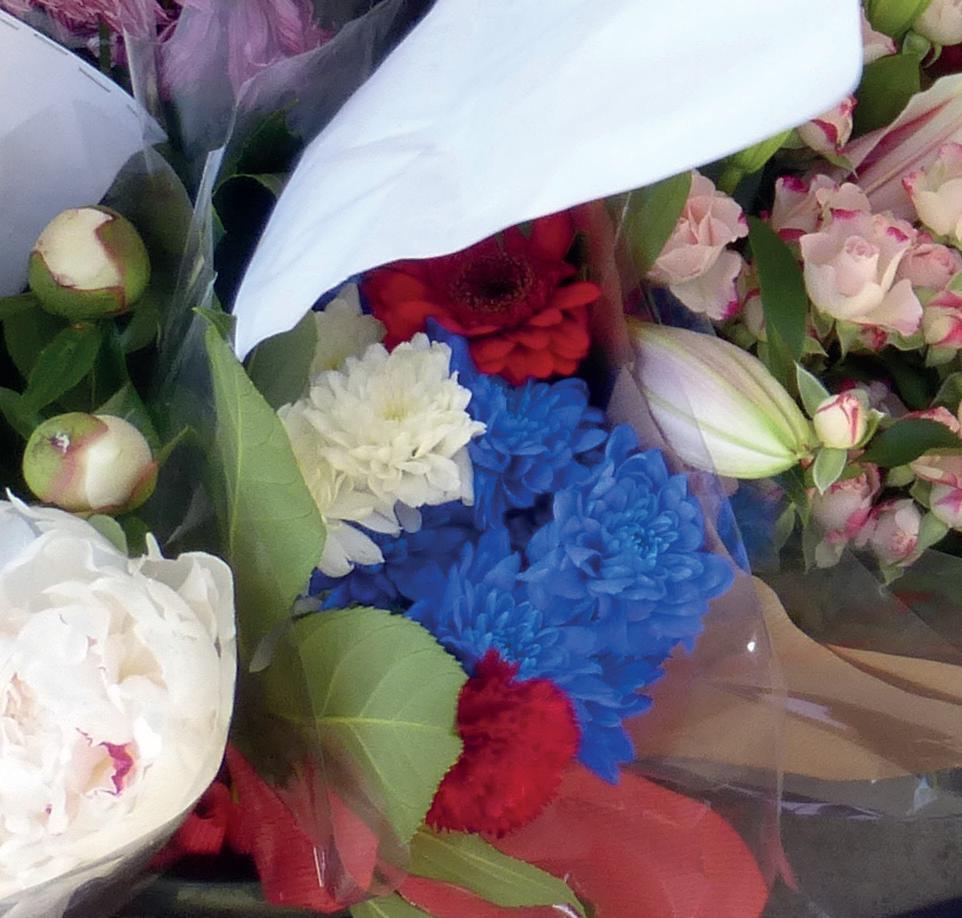
In this week’s issue: the state of LGBT+ rights in Europe, the NUS’ fitness for purpose, what life after graduation will really be like, and what fashionable diets are doing to you






Tributes paid to Talybont student
Research funding endangered by MEDIC Forward
One of the British Heart Foundation’s “leading lights” has been targeted for disinvestment, Gair Rhydd can reveal. Professor Alan Williams and his parent department, Ionic Cell Signalling, are considered to be at risk despite Williams receiving significant grants from the British Heart Foundation. Though the exact figure is unconfirmed, the latest grant (or ‘award’, as it is described by the BHF) is reported to be approximately one million pounds.
This news comes just one week after Gair Rhydd revealed that up to 69 members of academic staff are set to be made redundant as part of MEDIC Forward, Cardiff University’s controversial plan to restructure the School of Medicine. MEDIC Forward has attracted criticism from
staff, students, and the University and College Union (UCU) for being who have expressed their “grave concerns” with the project.
In a report issued to the University Council, one of Cardiff University’s governing bodies, the UCU stated that MEDIC Forward was a “poorlydisguised exercise in removing from the School people who are outside the major areas favoured by the ‘primary influencers’”.
The UCU further stated that the proposals “present a real risk of reputational damage to Cardiff University [...] to say nothing of the impact on the staff involved”. MEDIC Forward has described some departments, such as Williams’ as ‘unsustainable’, despite those same departments attracting millions of pounds in research grants.
It is understood that the Medical School needs to approve the million-pound grant before it can be awarded, but this has yet to happen because the consultation period for MEDIC Forward is ongoing. The Medical School has previously communicated that grant money and other investors would be returned to stakeholders where projects could not be completed, and it is assumed that if Williams’ department or team was disinvested from then the grant would have to be refunded.
Heart Disease is the biggest killer in Wales, and a leading cause of death in the United Kingdom. A report commissioned by the Welsh Assembly noted that the death rate of Coronary Heart Disease in Wales “is greater than in the majority of countries in Western Europe”.
It is feared that Cardiff University will be neglecting its mission to undertake research for the public good by disinvesting in Cardiology research, particularly when the research interests of charities such as the British Heart Foundation are at stake.
A Cardiff University spokesperson would not comment on the future of IMEM or Alan Williams’ group. The spokesperson said: “It would be inappropriate to comment on any funding application or an individual’s circumstances whilst the Medic Forward consultation process remains on-going. “
“Until the consultation with staff, stakeholders, the wider University, the Trade Unions and the individuals themselves is completed we would advise anyone who wishes to raise

Continued on page 4
EXCLUSIVE
Davidson
Michael O’Connell-
British Heart Foundation award on
MEDIC Forward consultation Cardiology research branded “unsustainable” despite massive charity investment SEE PAGE 7
hold due to ongoing
THE FREE WORD
EDITOR
Michael O’Connell-Davidson
GAIR
RHYDD CO-ORDINATOR
Elaine Morgan
NEWS
Georgia Hamer
Katie Evans
Alexander Norton
Anna Lewis ADVICE
Kirsty Fardell
COMMENT
Anne Porter
Gareth Evans
Olivier van den Bent-Kelly
COLUMNIST
Jason Roberts
POLITICS
Carwyn Williams
Lauren Boyd Rhiannon Tapp
SCIENCE
Shanna Hamilton
Meryon Roderick
SOCIETIES
Hannah Sterritt
PARK LIFE
Vidya Brainerd
TAF-OD
Steffan Bryn Jones
Morgan Owen SPORT
David Hooson
Rory Benson
Joe Atkinson
PRODUCTION EDITOR
Sum Sze Tam
DIGITAL EDITORS
Jordan Adams
Gregory McChesney
SOCIAL MEDIA
EDITOR
Maria Mellor
EDITORIAL ASSISTANTS
Jack Boyce
Eleanor Parkyn
Want to join the team?
Editorial conferences are each monday at 5PM. Proofreading takes place on Thursdays at 6PM in the media office during print weeks.
Write us a letter letters@gairrhydd.com Tweet us: @gairrhydd
Concerning this week’s splash
Tis week, we’ve placed a photograph of the tributes paid to the Cardiff student, aged 20, who was found dead in Talybont last weekend. Our intent here is to report on the tributes rather than the death itselffor it is a deeply personal matter for those affected - and I believe that we’ve struck the right balance in doing so.
In a way, our front page is intended to be a tribute in and of itself; though nobody on the Gair Rhydd team knew the student personally, it is a loss for the entire student community when any of us passes on. Indeed, any death is a loss beyond comprehension; you’re talking about the loss of a friend who might have been.
Our thoughts are with those who lived alongside that student, who attended seminars and lectures
with them, and those who are related either by blood or circumstance.
Perhaps a small few may wonder why we have chosen to shine a light on something so deeply personal, but I believe that there is a self-evident public interest justification for reporting on student fatalities.
And that justification is entirely magnified in cases such as this where an irresponsible few have taken to anonymous services such as YikYak to put forward braindead conspiracy theories and outright lies.
At one point on the day, various people on social media thought it would be appropriate to say that an argument had taken place, and that someone had been stabbed. Te Police have since confirmed that
this was not the case, meaning that whoever put this theory forward was either acting on hearsay or simply contrived it altogether. What a terrible reflection on Cardiff University’s student community that is.
Te role of Gair Rhydd as a public service is to dismiss misinformation like this, but regardless, I cannot quite fathom what leads to its manifestation in the first place.
It is my hope that anybody who advanced nonsense like that referenced above takes a look at the powerful image on the front page and considers the impact that sort of behaviour might have on those affected. Death brings all conversations to a close; it is not a conversation strangers should feel comfortable butting into.
- MOCD
Why you should join Gair Rhydd
As you can see below, we’re recruiting editors to join Gair Rhydd next year. I’d like to give you my take on why you should get involved in making the paper, as it’s a fabulous experience and one that entirely changed my university experience.
I should note in advance that I have no involvement nor any vested interest in this process; it’s all up to Joe Atkinson, the paper’s next editor, who will start in June and take the helm for the whole of the next academic year. I won’t even be in Wales when Joe’s first issue comes out - so when I talk up how good things might be, you should know I’m not bullshitting you.
So here’s my pitch: Gair Rhydd is the closest thing you’ll get to a real newspaper at Cardiff University. It’s the fastest way you’ll get your name in print, and will give you a real, permanent thing that you can hold to your chest and put on your CV. Tis isn’t like writing for your mate’s website that’ll probably disappear in a year or so. As our (currently on
hold) Tis Week in History feature has made clear, your contributions to Gair Rhydd last. Te paper’s archived, and serves as a record of the institution’s history.
Of course, it’s often an inconvenient, self-effacing history. But it’s the history that students have written. It’s life on the ground during a year in the past, and it’s extraordinarily valuable.
Now we’re independent of the Sabbatical Officers (who are, by and large, lovely people), we’ve got more breathing room than ever before to tell stories that simply would not have been possible in previous years. Our interdiction in certain events, such as the Welsh Language Referendum, effectively completely changed the way those events were considered by the public, and the way they will be considered by the future.
And that’s important, because we can’t let the dominant narrative go unchallenged. Just as competition and scrutiny is good for us, scrutiny of
the dominant narrative is good for everybody. We should be afflicting the comfortable and comforting the afflicted. We’ve started doing that this year, and long may it continue.
Even if you don’t fancy the weekly page design slugfest that is working on the Gair Rhydd editorial committee, we’re always open to contributions. We’re one of the few university committees where our meetings have an open door to just about anybody. Why? Te newspaper is as valuable as the number of voices it can attract, and I truly believe the only way that we can attract those voices is by being as open as possible.
So whether you’re interested in taking a lead or just interested in getting your name in print, at the very least, stick your head through the door next year. What we do is a lot of fun, and it’s important, too. Don’t be a spectator. Join those of us in the thick of it.
- MOCD
Join the Gair Rhydd editorial team! We’re
recruiting for the academic year 2015/16

and Complaints Procedure at cardiffstudentmedia.co.uk/complaints
Opinions expressed in editorials are not reflective of Cardiff Students’ Union, who act as the publisher of Gair Rhydd in legal terms, and should not be considered official communications or the organisation’s stance. Gair Rhydd is a post office registered newspaper.
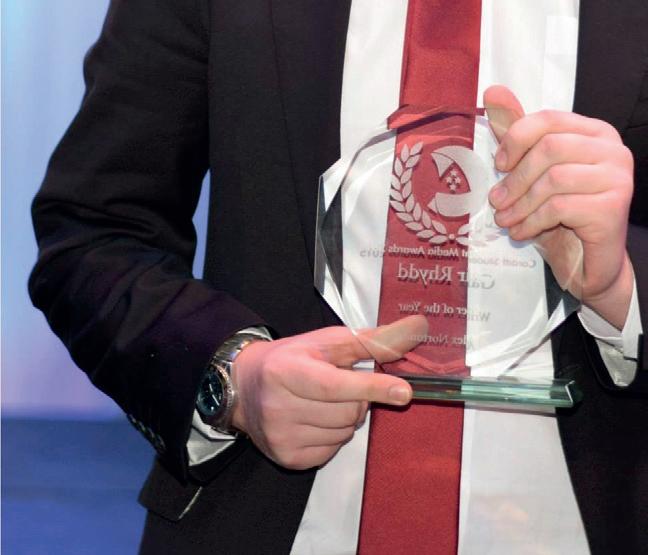

Tere’s two issues left of this year’s Gair Rhydd, meaning that it’s almost time for this year’s team to pass the baton to the next generation. Michael O’Connell-Davidson will hand over to Joseph Atkinson as Editor-in-Chief, and the current section editors are interviewing their replacements. Anyone who will be enrolled at Cardiff University next year has the right to apply!
Whether you’re impressed by how Gair Rhydd is currently run or you feel that our sections need improvement, we welcome all applications. Tere are opportunities to be an editor of any of our sections: News, Politics, Science, Comment, Advice, Taf-Od, Park Life, Societies and Sport. As an editor you will be responsible for sourcing content to go into the newspaper each week. It’ll be your job to distribute articles, either finding contributors or writing your own pieces. You and your co-editors will then layout the articles on InDesign, find or take photos to match each piece and arrange titles and subtitles as appropriate. Becoming a section editor is a big responsibility but is highly rewarding. You’ll be expected to find and help develop contributors, who may go on to become section editors in future. A good understanding of your audience - your peers at Cardiff University - is a must. But each week you’ll have physical evidence of your hard work and each week you’ll have opportunities to improve your writing and design skills. Whether you’re looking
to go into a career in journalism or not, having editorial experience would be priceless experience on anyone’s CV. Gair Rhydd alumni include newsnight’s Meirion Jones, VICE News’ Ben Bryant, and Huw Edwards of the BBC.
Gair Rhydd is a learning experience. We do not expect applicants to be professional level - rather, we are looking for individuals with an understanding of what Gair Rhydd does and who Gair Rhydd is for. Training will be provided, so applicants should consider not what they can do but what they would like to do before applying. We are also looking for a columnist. Tis person would be expected to write one piece on any topic of their choosing every week whether humorous or serious. We want someone who can effectively voice their opinions on topical matters and provide us with a good quality column. Candidates selected for interview will hear back within 24 hours and will be asked to attend an interview either in person, by phone or on skype with the current section editors.
If you want to see your name in print, just like those to the left of this article, take a chance! Simply send a quick email to editor@gairrhydd. com and we’ll reply with an application form for you to fill out. We welcome all kinds of people and we want to hear your ideas. Good luck to all those who apply, and we look forward to welcoming new faces onto the team!
At Gair Rhydd we take seriously our responsibility to maintain the highest possible standards. Sometimes, because of deadline pressures, we may make some mistakes. If you believe we have fallen below the standards we seek to uphold, please email editor@gairrhydd.com. You can view our Ethical Policy Statement
Alexander Norton
Joe Atkinson
Campus In Brief


Te US ambassador to the UK, Matthew Barzun, visited Cardiff University to host a forty-five minute guest lecture on American foreign policy entitled ‘Hands on or hands off?’. Unsurprisingly, the former Obama fundraising chair was supportive of the President’s stance with regards to the ongoing conflict in the Middle East.
It has been announced that some 2,500 Cardiff students (none of whom study a language as part of their degree) have benefited from the University’s free ‘Languages for All’ programme over the past twelve months. Amongst the courses offered are French, Spanish, German, Arabic, Mandarin and Russian.
Cardiff University Students’ Union have confirmed that popular first floor café ‘CF10’ is to close after more than a decade of service as part of a planned £2.5m redevelopment, despite a petition to save the establishment gathering hundreds of signatures. Staff contacted Gair Rhydd to express their sorrow over the closure and thank customers for their loyal service.
Petting zoos appear to be here to stay after the Students’ Union brushed off suggestions that the events were cruel to the animals involved, citing the provider’s association with Newport City Council and the RSPCA as proof of high welfare standards. Events are currently scheduled in ASSL gardens on 22nd and 29th May and 5th June.
Former Labour leader Neil Kinnock, who led the party for nine years between 1983 and 1992, returned to Cardiff University as part of a Wales Governance Centre series in which prominent political figures talk about their careers. Te seventy-three year old, who served as Students’ Union president in 1965, reminisced about his time in the Welsh capital and broader political career.
Finally, tributes have been paid to a twenty yearold student in the wake of his premature death on 16th May. Flowers and messages have been left outside the deceased’s residence in Talybont North.
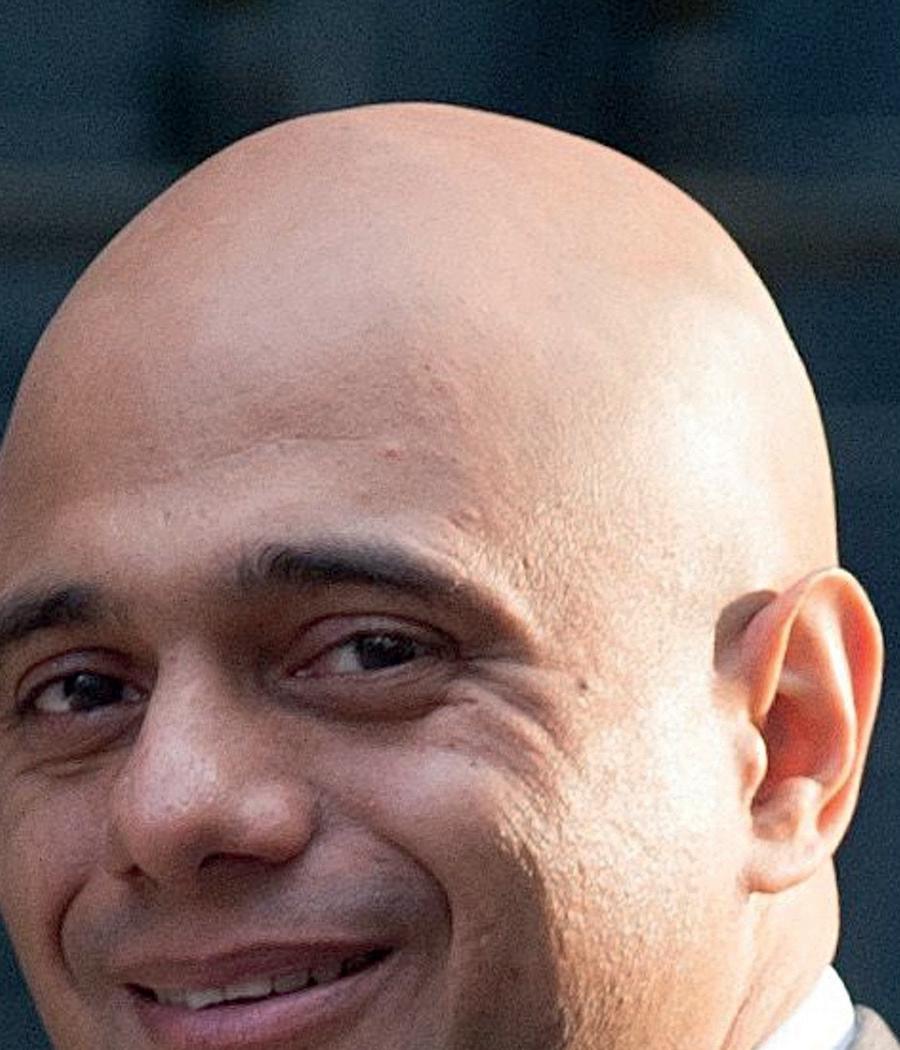
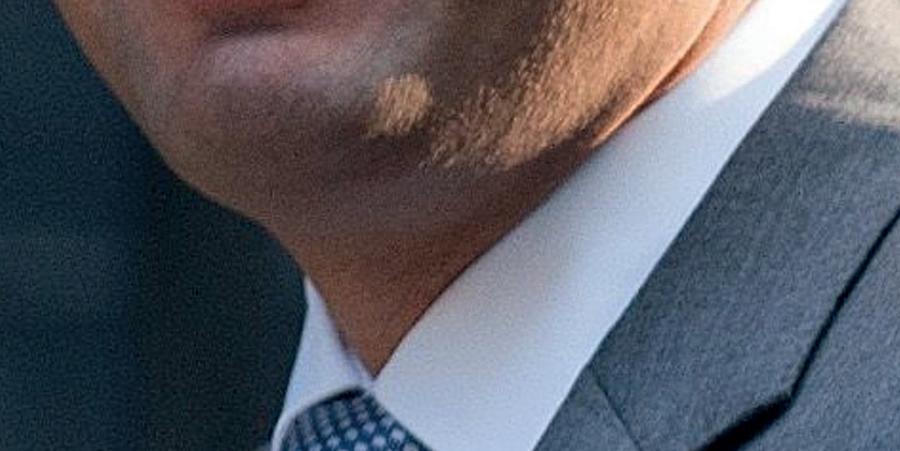
NATIONAL
For the first time since 1960, the measure of inflation in the UK was recorded as negative for the month of April, with the rate falling to -0.1%. Falls in the prices of air and sea fares were put down as the largest contributors to the fall in Consumer Price Index inflation. Te governor of the Bank of England Mark Carney said that he believed that inflation would remain low over the coming months.
Home Secretary Teresa May was criticised from inside the Conservative cabinet for threatening free speech after plans to vet the programmes of British broadcasters before they were made public were made apparent. Te Culture Secretary Sajid Javid wrote to David Cameron, saying that May’s plans would change the broadcast regulator Ofcom “into the role of a censor”.
Rail unions cancelled prospective strikes due to take place over the Bank Holiday weekend. Te decision to call off the industrial action came after members of the RMT and TSSA unions were given a “revised offer” over a pay dispute with Network Rail. Members of the two unions had planned to cease working from 5pm on Monday for 24 hours.
Te Mirror Group was ordered to pay £1.25m in damages to a group of eight celebrities who had their phones hacked by journalists working for the organisation. Pay-outs went to the likes of Shane Ritchie, Paul Gascoigne and Sadie Frost, while Mirror Group has set aside £16m for similar claims likely to be made in the near future.
Travel company Tomas Cook made what they described as a “sincere and heartfelt apology” and offered to make “a financial gesture of goodwill” to the parents of two children who died in a Corfu holiday cottage from carbon monoxide poisoning. Christi and Bobby Shepherd died in 2006, with the electrician found guilty of their unlawful killing in 2010 still working at the hotel after their deaths.


INTERNATIONAL
ISIS seized control of the historic Syrian city of Palmyra, with fears that militants will destroy the city’s ancient ruins, as it has done with cities of cultural significance all over the country. Reports claimed that ISIS now controls over half of Syria’s landmass, according to the director of the Syrian Observatory for Human Rights.
Prosecutors in Baltimore have charged six police officers over the death of Freddie Gray, who suffered a severe spinal cord injury and later died in April. His injuries were sustained in police custody, and the officers have been charged with counts of second-degree murder. Gray’s death sparked weeks of protests that turned into riots and looting in the American state.
The United States insisted that it would continue to conduct air and sea patrols on international waters, after the Chinese Navy gave eight warnings to an American aircraft in airspace over an area of the disputed South China Sea. The surveillance plane had passed directly over one of a number of artificial islands that China is building in the territory.
The US published files found during the raid on the compound used by Osama Bin Laden in which the former leader of al-Qaeda was killed. Bin Laden had been urging his followers to remain focused on attacking America, while a wide array of literature, ranging from jihadist material to the works of Western authors such as Noam Chomsky. Satellite data has revealed the extent to which an ice sheet in the Arctic Ocean has begun to collapse, which had previously been believed to be stable. Findings published in the journal ‘Science’ demonstrated that the ice sheet was shedding ice into the ocean at a rate of 56 gigatons every year, adding around 0.16mm per year to global sea levels.
Prosecutors in Baltimore have charged six police officers over the death of Freddie Gray “
3 EDITORIAL
Pictured: Sajid Javid, who clashed with Home Secretary Teresa May (Photographer: Rex)
”
tweet us @gairrhyddnews
email us news@gairrhydd.com or visit us online at gairrhydd.com/news
Cont’d: MEDIC Forward consultation leaves heart research in doubt

Continued from front page
any concerns to do so through most appropriate channels.”
Cardiff University would not confirm whether or not the scenario described was unique to Williams’ team, or if other research grants were also being suspended while the consultation period continues. Tey also refused to comment more broadly as to whether or not cardiology research at the Medical School more was at risk of disinvestment.
Prof. Peter Weissberg, director of Medicine at the BHF, spoke to Gair Rhydd and said: “Many large medical schools in the UK have recently undergone strategic reviews and the
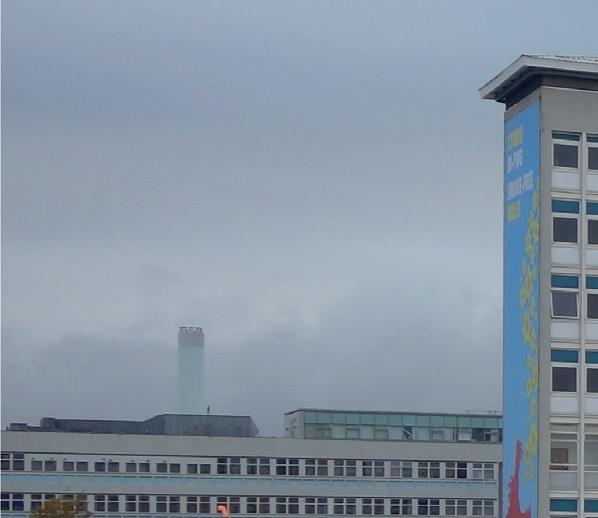
BHF is aware that Cardiff University’s School of Medicine is currently undergoing such a review to redefine its priorities and its managerial structure.”
“Professor Alan Williams’ group is one of its leading lights and we are confident that Professor Williams’ new award is not in jeopardy, although it is not yet clear where his group will fit within the anticipated revised structure. We await the outcome of the formal consultation process with interest.”
“ Te BHF is committed to supporting high quality cardiovascular research across the UK. Cardiff Uni-
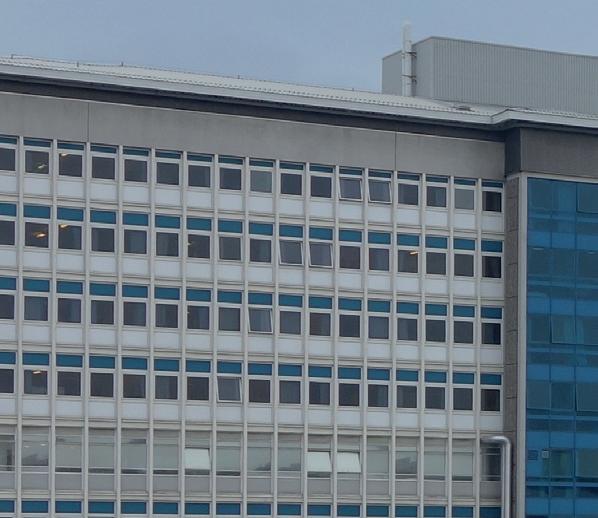
 Daniel Heard
Daniel Heard
versity is aware of the burden of cardiovascular disease in the Welsh population and needs to define how it can best address this problem through its new research strategy and structure.”
Tough the BHF is confident that Williams’ award is not in jeopardy, it is understood that Alan Williams is one of the 69 academics who have been notified that their area of research is currently being considered for disinvestment, and it is possible that he will be made redundant as part of the restructure. As noted by Weissberg, it is not yet clear where Williams’ group will fit under the new, post-MEDIC Forward structure, or indeed if he will have any place at all.
Despite wide-ranging student complaints about poor communication, nothing further information about MEDIC Forward since last week’s Gair Rhydd story has been provided to those affected, and many questions are still being asked.
It remains unclear what will happen to those PhD students that lose
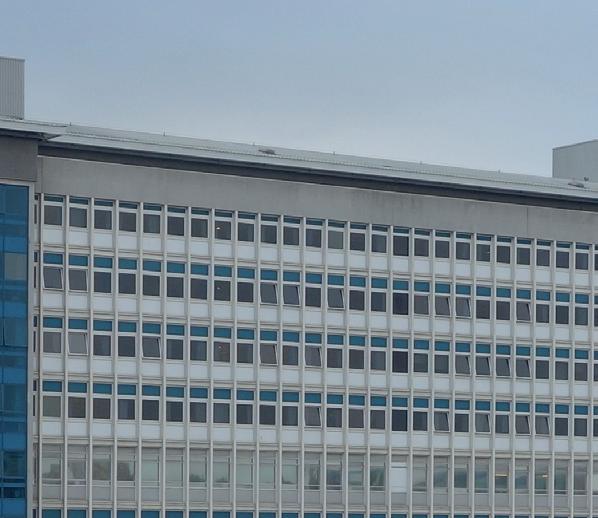
their supervisors; the school has suggested in some cases that students would be forced to start again.
Te University and College Union presented the case for either slowing or stopping the MEDIC Forward restructure to University Council on Monday 18th of May.
Te report presented to those on Council cited wide-ranging problems with the MEDIC Forward consultation as it has so far progressed: “As a result of previously admitted failures of management within the School, the current senior management team does not have accurate information on the activity of large sections of its staff [...] At least four months of the consultation period has been expended on activities which would normally be expected to be part of business as usual.”
Te University Council will meet in June to discuss how MEDIC Forward will proceed. Tose affected by the proposals face an uncertain future while the consultation continues.


“
Police estimate that more than five hundred attended the event, whilst organisers were quick to put the number closer to four figures
while the consultation continues
” Those affected by the proposals face an uncertain future


Anti-austerity protests take hold of central Cardiff
Last weekend saw hundreds of people march through Cardiff city centre in the second protest against government austerity measures to be organised in the wake of the General Election results.
Te demonstration, organised by the Cardiff ’s People’s Assembly, began when participants gathered by the statue of Labour MP and National Health Service founder Aneurin Bevan on Queen Street.
Te march follows a similar rally which took place just two days after the election, which saw celebrities - the most prominent being Cardiff-born singer Charlotte Churchlaunch a scathing attack on the newly elected Conservative Party.
Saturday’s protest was also promoted on social media by Welsh actor Michael Sheen, who Tweeted details of the event to his 232,000 followers.
Police estimated that more than five hundred people attended the event, whilst organisers were quick to put the figure closer to four figures.
Te Cardiff People’s Assembly, who state that they “don’t like poverty, inequality, austerity & cuts & [are] gonna do something about it!” have been amongst the most vehement critics of the Conservative presence in Wales.
Adam Johannes, one of the organ-
isers of the march, said: “In 1945, Britain was bankrupt, in debt, with a higher deficit than now and yet the government built half-a-million council houses, founded the NHS, and launched the welfare state. “
“We do not accept a government that less than quarter of people actually voted for can take that away from us”.
Te profile of the events have been boosted with the attendance of the likes of Church, who joined the march for the second week running having previously told her Twitter followers: “If you still have fire in your belly over yesterday’s result come and join us in an anti-austerity rally.”
Although at the forefront of the previous march, in which she told campaigners that she was “mad as hell”, Ms Church chose a less prominent role on Saturday and decided to stay among the crowds.
Labour’s Welsh public services minister Leighton Andrews took to Twitter on Sunday morning to say “well done” to Ms Church.
But the Welsh Conservatives’ leader Andrew RT Davies described Ms Church and Mr Andrews as “champagne socialists standing shoulderto-shoulder”, adding that the Welsh Conservatives have “never taken anyone for granted”.
He pointed out the party, which won eleven of Wales’ forty seats, had enjoyed its best result in the country for thirty-two years.
Cardiff University’s Ethical and Environmental Officer Daniel Rhys Roberts, also a member of Cardiff ’s People’s Assembly and Membership Officer at Plaid Cymru Ifanc, was at the second march.
He said: “ Tere is clearly a very strong and widely-held anger in Cardiff against the unprecedented downscaling of our public services that is
coming over the next few years - and who can blame the people for feeling that the disabled, the young, the old, and the unfortunate should pay for a financial disaster that had nothing to do with them?
“ Te government needs to be prudent with its spending, but before taking £12billion out of the welfare budget, I’d urge them to look at much more productive targets; don’t renew trident, sort out tax avoidance, and increase the top rate of tax.”


NEWS
“ ”
Pictured: Protesters marching down Queen Street (Photographer: Ben Blyth)

University investigation confirms student urinated on ferry
Anna Lewis A
n investigation into the misbehaviour of the Cardiff Medics rugby team whilst on tour has condemned students for their ‘inappropriate and wholly unacceptable’ actions.
Te investigation was launched after Gair Rhydd reported in March that one intoxicated student allegedly “pissed in the food” of onlookers.
The report concluded that Cardiff Medics RFC behaved in an unacceptable manner, including drunken, loud and offensive behaviour
However, whilst the report suggested that there ‘was no evidence’ to prove that a student urinated on a table, it was confirmed that one rugby player did indeed urinate “on board.”
It was also concluded that members of Cardiff Medics RFC “behaved in an unacceptable manner, including drunken, loud and offensive behaviour; and used foul language likely to be found threatening by fellow passengers.”
Disciplinary action been collectively taken againt the Medics rugby club in order to impose “long term change” in the club’s practices, while a “culture of heavy drinking,” was blamed for the incident. Te individual involed in the incident was not named.
Sanctions have included banning all future Cardiff Medics rugby tours until “such time as confidence and trust is
restored” in the team, and preventing students from attending the annual old boys’ dinner.
In addition, the rugby team were made to undertake a series of “professionalism workshops” during weekends and evenings and undergo a “complete image change,” including “major charity fundraising and community focussed events.”
Such punishments have been supported by the Students’ Union, who have pledged to provide additional support to Cardiff Medics RFC and other sports clubs to help students to “understand their responsibilities and expected standards of behaviour.”
It is hoped that such efforts will help to re-establish the reputation of the University and the School of Medicine, after the initial news of the team’s misbehaviour was reported across national press including the Guardian and the BBC.
At the time of the event, the team were prevented from completing their return journey with P&O ferries. According to a P&O spokesman, the behaviour of students was such that “we had to explain that we would not offer them the return journey. Te behaviour
was so appalling we didn’t have a moment’s hesitation in banning them from coming back with us.”
In the subsequent investigation, the University were quick to establish that the behaviour of the rugby team during the incident was far from common amongst fellow sports clubs.
Cardiff University’s Pro Vice-Chancellor for Student Experience, Professor Patricia Prince said: “Te vast majority of Cardiff students go out and enjoy themselves and know when to draw the line. Many of our students are committed and talented sports men and women with no interest in heavy drinking.
“It’s unfortunate that this incident has only served to tarnish the good name of the majority of our students and a small number of our medical students in particular.”
Te behaviour of the students was also condemned by the Dean of Cardiff University’s School of Medicine John Bligh, stating: “Some members have breached acceptable rules of behaviour and engaged in anti-social behaviour.
“Tis incident has undermined this reputation and together, we must do all we can to ensure that the team acts as a force for cohesion, identity and pride
Pet hate: students question petting zoo
within our Medical School and the Welsh public.”
However, it was warned that if such incidents were repeated, then the University would be left with no option but to enforce ‘more draconian measures.”
Following the results of the report, the Officers of Cardiff Medics RFC have released an official apology to those “affected” by the behaviour of its students.
Te team stated: “We recognise that the behaviour of a proportion of the touring party was inappropriate and wholly unacceptable. For this we apologise.
“Cardiff Medicals RFC does not tolerate antisocial behaviour from its members, and the club is determined to ensure that such behaviour will not be repeated.”
Despite the incident, the team maintained that they remain: “a force for cohesion, identity and pride within the Medical School.”
According to the statement, members of the team are “committed to learning from recent events, and is in agreement with the precedent set by the actions of Cardiff University in this matter.”
Pictured: Above: P&O ferries, used by the Medics Rugby team to travel to Calais (Photographer: Roel Hempkes) Below: Questions have been raised over the welfare of the Students’ Union petting zoo animals
Alexander Norton
The events see animals hosted in a small pen where they are visited by hundreds of students
Cardiff University Students’ Union is facing criticism over its hosting of revision ‘petting zoos’ designed to alleviate stress amongst students during exam periods.
Te next planned petting zoos, on 22nd and 29th May, have provoked debate on social media, with detractors deriding the practice as “unethical” and “cruel” in their treatment of animals.
Te events typically see animals such as sheep, ponies and even llamas hosted in a small pen where they are visited by hundreds of students throughout the day.
In a comment piece published by Gair Rhydd last week, Harry Fisher of Cardiff University’s Promotion of Animal Welfare Society was quick to condemn the practice.
“As an animal welfare society we don’t condone having animals kept in such a confined space being spooked by the loud noise of a crowd.”
He added: “Although I personally agree that animals and stress relief go together perfectly, I believe that there are better ways to go about this.”
Having visited one of the petting zoo for the first time, a first year student told Gair Rhydd that the animals seemed “uncomfortable” in surroundings that “are pretty cramped and not at all like their natural environment.”
Tese accusations were put to the Students’ Union, who insisted that they were “confident that the animals’ welfare is the highest priority” for the company which puts on the events.
A spokesperson for Cardiff University
Students’ Union said: “We have used a company called Walnut Tree Farm Park who are a fully functioning farm in Newport, offering a “petting zoo” service for organisations such as ours.
“Tey are subject to regular checks from the Animal Health & Welfare Department at Newport City Council and work closely with the RSPCA.”
Ethical and Environmental Officer, Daniel Roberts stopped short of criticising the events, but reiterated the need to ensure animal welfare at every opportunity.
“I’d hope that the Students’ Union does everything they can to ensure that this is conducted in an ethical and proper way,” he said.
“However, I’d love for this type of thing to be consulted on with the rel-

5 NEWS
“ ”
“ ”
“Damaging” cuts facing Careers and Employability staff
Members of the Careers and Employability department are set to have their budgets dramatically reduced, as part of a wave of cuts introduced by Cardiff University.
Te move, which has been condemned by the University and College Union as ‘damaging’ to the University’s reputation, will see staff salaries slashed and a budget reduction of two per cent.
In addition, the department will be given a ‘flat cash budget’, which means it will have a fixed monetary allowance instead of a flexible allocation.
Te UCU have stated that the planned proposals directly contradict statements made by the University promising to ‘regularly review and enhance our academic and professional services supporting students’.
In the proposal it is explained that senior staff members, categorised as ‘Grade 7 professionals’ as part of an eight-tier system, will be downgraded. However, when asked for further clarification a University spokesperson failed to provide more detail.
Staff from the Student Enterprise department, Work Experience and Skills and Development programmes will be affected by the decision, according to
Pictured: Te Union’s Student Enterprise
Office, reported by the UCU to be under threat (Photographer: Neil Morten)
We are devastated that we have to close CF10 Staff
the UCU.
Despite its popularity, the Cardiff Award scheme will also see changes made to its staff in what the union have described as a ‘regrettable loss of expertise’.
It has also been noted that the restructure will include the loss of a significant number of female staff, leading to a ‘detrimental impact on the career opportunities for women’ available.
For those affected, it is thought that the decision will entail budget cuts of thousands of pounds, as employers will be downgraded to a Grade 6 level salary.
Te news follows a wave of proposed cuts in other areas of the University, as Gair Rhydd revealed last week that up to 69 members of staff from the School of Medicine are set to be made redundant as a result of a project named ‘Medic Forward’.
Te latter move will also see PhD students forced to halt their research projects, despite years of work and dedication.
In a continuing backlash against the University, the proposed cuts for the Careers and Employability department have been described as ‘poorly researched, and unreflective of the needs
of the ‘students, schools and employers’.
Te UCU insist that University colleges ‘were not adequately consulted’ before decisions were finalised, and as a result, it is predicted that roles will have to be re-negotiated.
As such, it was alleged that the decision process ‘makes a mockery of Council and the system of governance which we as a union support’.
Te UCU has also been quick to point out that such restructuring defies the aims of the Careers and Employability service itself, which seeks to see Cardiff University recognised as ‘one of the top university careers services in the Russell Group’.
Te services provided by the Careers and Employability currently play a significant factor in influencing the University’s league table rankings.
By cutting the funding of the department, the University could risk receiving lower marks in graduate employability statistics and student satisfaction ratings.
Tis follows its fall from 23rd to 31st in the 2016 Complete University rankings, in spite of plans to land a place in the top twenty by 2017 according to the established ‘Way Forward plans’.
‘Te Way Forward’ strategy states

that the University’s investment priorities include the ‘recruitment, retention and development of the best quality staff ’. Such claims are a stark contrast to the budget cuts proposed.
Further concerns have been raised over the impact that these decisions will have over degree programmes that include work placements. Despite the effort made by the University to introduce career-based modules into a number of degrees, it appears little provision has been made ensure adequate support.
Te news was announced during a meeting on May 6th, after a series of consultations on February 16th and 25th.
However, according the UCU, the minutes for the January meetings have only recently become available.
Te union have now suggested that the University Council delay the planned restructure to take into account the conclusions drawn by their report.
Tey also encouraged the University to ‘ring fence’ the posts being threatened in order to reduce staff turnover and ensure that the departments keep their most experienced members.
Te UCU currently await feedback from the University’s Chair of Council. In response to the accusations made against the restructure of the Careers and Employability department, the University have stated that they are currently planning a modernised service to ‘provide access to a full range of careers information, advice, work experience and skills development programmes’.
According to a spokesperson, the decision was in fact decided after a twelve month ‘extensive consultation with students, employers, trades’ unions, University staff and management.’
Tey asserted that ‘the needs of students, employers and the University’s strategic direction have been thoroughly considered.’
Hundreds sign online petition to save CF10 caf e
First floor Students’ Union café
‘CF10’ faces closure in spite of a petition that has gathered over four hundred signatures.
Te establishment, which is currently open six days a week, is well
known for its ‘super mega breakfast’ which is advertised as being ‘not for the faint hearted’.
Te petition, named ‘Save CF10 café in Cardiff SU’ and started by Charlotte Griffiths, is just one hundred signa-
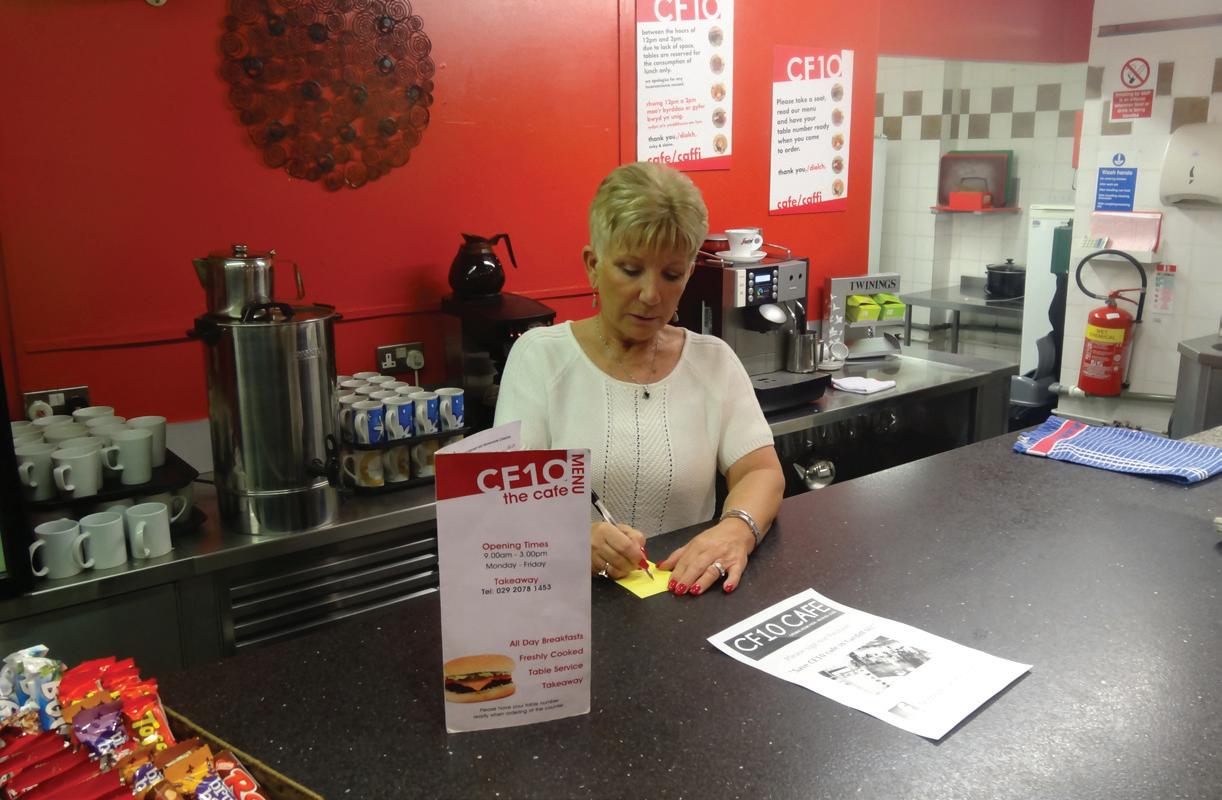
tures short of its target at the time of writing.
In the petition, Griffiths says: ‘It is such a shame that the SU wishes to close [Cf10] down. While there are other eating establishments within the SU, CF10 has a wider range of tastier food at a better standard and price.’
‘It is always busy, and I feel a lot of loyal customers would be disappointed. It is also a nice, quieter place to sit and chat, or even work with a cup of tea and snack, as opposed to the nosier main floor of the SU.
‘I have also got to know the great, hardworking, dependable staff over my time at uni, and it is a shame that they would be out of a job,’ she concludes.
‘Due to the renovation of Cardiff University Students’ Union, ‘CF10’ café is being turned into a dance studio and we have been given notice to quit the premises’, café worker Vicky Marks told Gair Rhydd.
‘We are devastated that we have to
close.’
‘All the staff would like to take this opportunity to thank you all for your custom and loyalty over these past ten years,’ she said.
In spite of the popularity of the petition, the Cardiff University Students’ Union hinted that the proposed transformation was set in stone and the decision would not be reversed.
‘Te redevelopment of CF10 will take place over the summer in time for a relaunch in September 2015,’ a spokesperson said.
Tey continued: ‘It is regrettable that the café element of CF10 won’t be retained, but the Students’ Union will continue to offer a wide range of food for students and staff.’
Te spokesperson reiterated that the move ‘follows extensive research’ that alerted Union planners to the need to provide more ‘social space for student groups’.
Te cafe will close its doors for the last time on June 10th.
“The Cardiff Award scheme will also see changes made to its staff in what the UCU has termed as a ‘regrettable loss of expertise’
One of the CF10 staff who have been given their notice to leave (Photographer: Katie Evans)
Alexander Norton
Anna Lewis
Pictured:
”
“ ”
6 NEWS
Katie Evans
STributes paid to Cardi ff Uni student
Student, 20, found dead in Talybont halls of residence
tudents have paid tribute to their friend and peer found dead in Talybont Halls of residence on Saturday, 16th May.
Police have confirmed that the death of the student, 20, is not being treated as suspicious. A student liaison officer from the South Wales Police offered the following statement:
‘On Saturday 16th May South Wales Police officers attended an address at Talybont Halls of Residence where the body of a 20 year old man was discovered.

Nightline is available from 8pm-8am on 02920 870555
Samaritans offer a 24-hour service available on 08457 909090.
‘ Te death is not considered suspicious. Next of kin have been informed and a file of evidence is being prepared for H M Coroner.’
Prior to the release of the police statement, reports had begun to circulate suggesting that the student took his own life.
Nestled amongst the bouquets of flowers laid outside the door of Talybont North House V are handwritten notes expressing feelings of great loss felt by grieving friends. One message reads: Bit lost for words as to what to say right now, if I could tell you anything I would want you to know how
much we love and miss you.
Te students’ notes also displayed touching humour in memory of their friend, reading: ‘You brought us all together with your stupid food shopping decisions,’ amongst other anecdotes.
A Cardiff University spokesperson said: ‘Our immediate thoughts and sympathies are with the student’s family at this extremely difficult time.
Te student’s friends and University staff affected are being offered support from a range of professional staff.’
Students were initially alerted to an incident at Talybont through various social media platforms, which carried conflicting accounts of what had occured.
However, as reports began to surface that the cause of death may be suicide, individuals began urging students who may be experiencing depression or other forms of mental health issues to contact counselling and support services to seek help.
Te current workload and stress levels experienced by students during exam period may exacerbate underly-
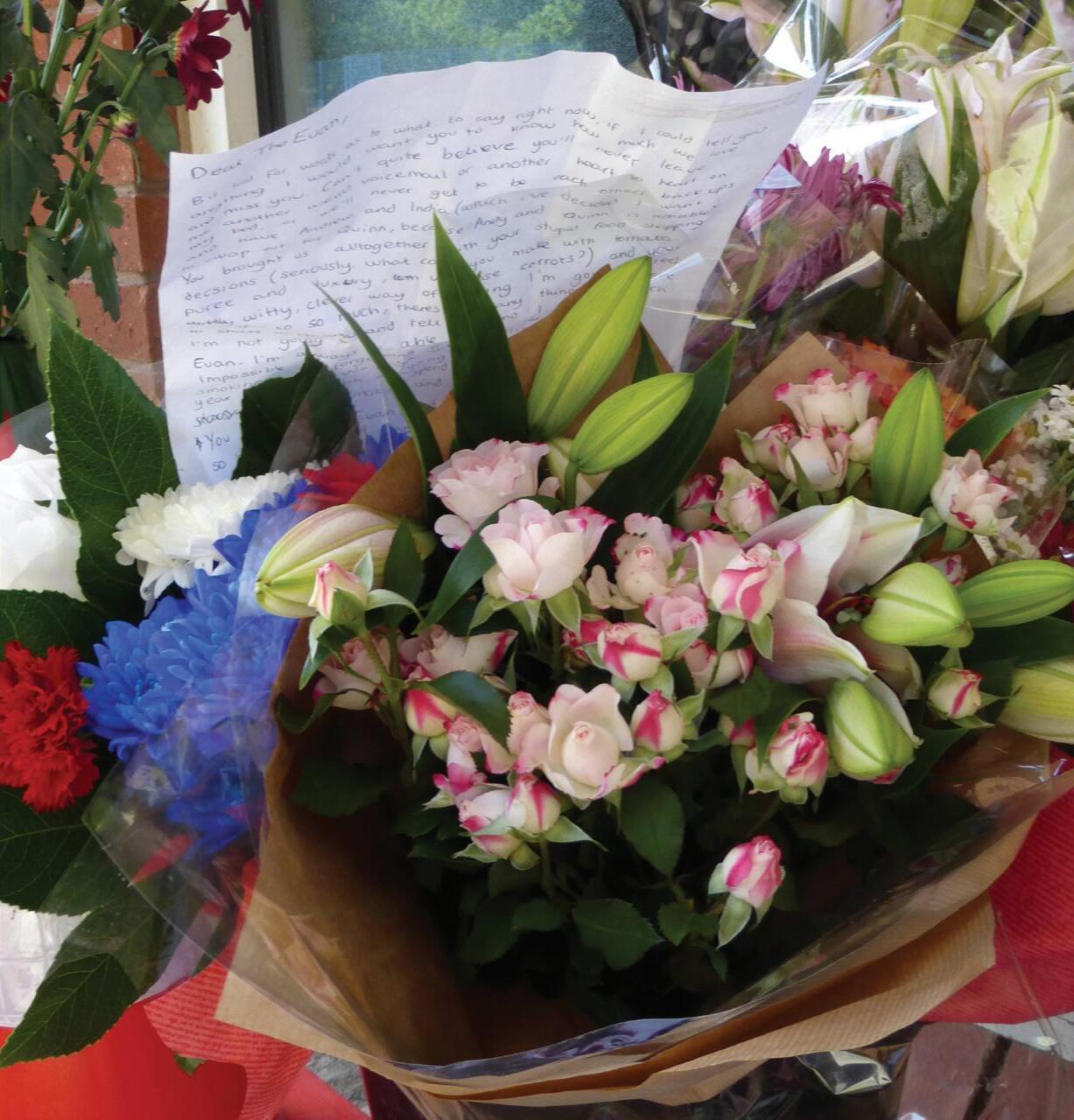
ing mental health conditions, and for those students currently experiencing difficulties coping with universityrelated or private issues, support is widely available on both a local and national level.
For many at Cardiff University struggling to cope with mental health problems, the Counselling, Health and Wellbeing Service on Park Place (Cathays Campus) and Cardigan House (Heath Park) is the first port
Pictured: Flowers and tributes outside Talybont North, House V (Photographer: Anna Lewis)
Alexander Norton
FPeople like me would not be here without a basic desire to make things and lives better
of call for counselling appointments or therapeutic sessions. Te appointments are free of charge as are the daily walk-in sessions, provided for those in need of general advice.
Te University’s student-led phone service, Nightline, is available from 8pm-8am on 02920 870555, whilst the national help-line, Samaritans, offer a 24-hour service available on 08457 909090. Both phone lines are anonymous and confidential.
Labour’s Kinnock returns to Cardiff University
ormer Labour leader Neil Kinnock was the subject of the latest in a series of lectures hosted by the Wales Governance Centre at the Pierhead Building in Cardiff Bay on Thursday, 21st May.
The Tredegar-born politician, who led his party in both the 1987 and 1992 general elections, was also President of what is now Cardiff University Students’ Union in 1965.
He went on to serve as President of Cardiff University, a position he held between 1998 and 2009.
As part of the ‘In Conversation With...’ lectures, the seventy-three year old peer reminisced fondly about his time at the institution, then called the University College of South Wales and Monmouthshire.
“I had an Industrial Relations degree, which really prepared me well for what we would have to go through in terms of the unrest that occurred under the Thatcher government.
“That said, the whole experience taught me much more about life than appears at the curriculum at any university.”
He also noted that upon his election to Cardiff University Students’ Council, his first serious foray into politics, his father asked him “not to grow a beard” because shaving ensured that politicians “had to look in the mirror every day.”
He recounted fleeing a pub to avoid being caught underage drinking by political hero Anuerin Bevan, before telling of how he became parliamentary candidate for Bedwellty over the course of one drinking session following the retirement of long-serving Harold Finch in 1970.
He ascended to the party leadership in 1983 as a result of the fact that he was “the only man for the job’ amidst a sea of ‘ultra-leftism and half baked Marxism and all of those things I never had any time for”.
Kinnock, who was hotly tipped to become Prime Minister in his prime but was defeated first by Margaret Thatcher and then John Major (“a good bloke”), also spoke of Labour’s route forward following their recent electoral disaster.
“For a long time, the Conservatives claimed to be the party of aspiration - but we are the party of aspiration. The party of schools, infrastructure, investment; the party of enabling.
“People like me would not be here without a basic desire to make things and lives better.”
He suggested that Labour’s loss of power in 2010 stemmed from the fact that although we had a “highly intelligent, courageous leader” in Gordon Brown, Labour’s policies “did not appear to have any roots in terms of values”.
The election wasn’t all bad for
Kinnock though, as he is the father of newly-elected Aberavon MP Stephen Kinnock – himself the husband of Danish Prime Minister Helle Thorning-Schmidt.
In line with his family’s return to Welsh politics, he made an impassioned plea to “make devolution work for the people of Wales”, but emphasised that “Wales and Scotland are different” and should be treated accordingly.
Vice-President of the European Commission between 1999 and 2004, Kinnock also argued that the
upcoming vote on Britain’s European membership was “a pointless referendum” and a result of the fact that “David Cameron cannot control his party”.
Nevertheless, he expressed the desire to see the vote take place as soon as possible to remove “uncertainty” and expressed confidence that “we [those who support membership] will win”.
Re-emphasising his local credentials, he noted that he was “a fan of Cardiff City” but “not a fan of Vincent Tan.”

Our immediate thoughts and sympathies are with the student’s family at this extremely difficult time Cardiff University spokesperson
NEWS
7
“ ”
“ ”
Pictured: Cardiff University graduate and former Labour leader Neil Kinnock
(Photographer: Christopher Furlong)
ADVICE
Welcome to our Advice section, where we bring you tips for surviving Cardiff University life Email us: advice@gairrhydd.com
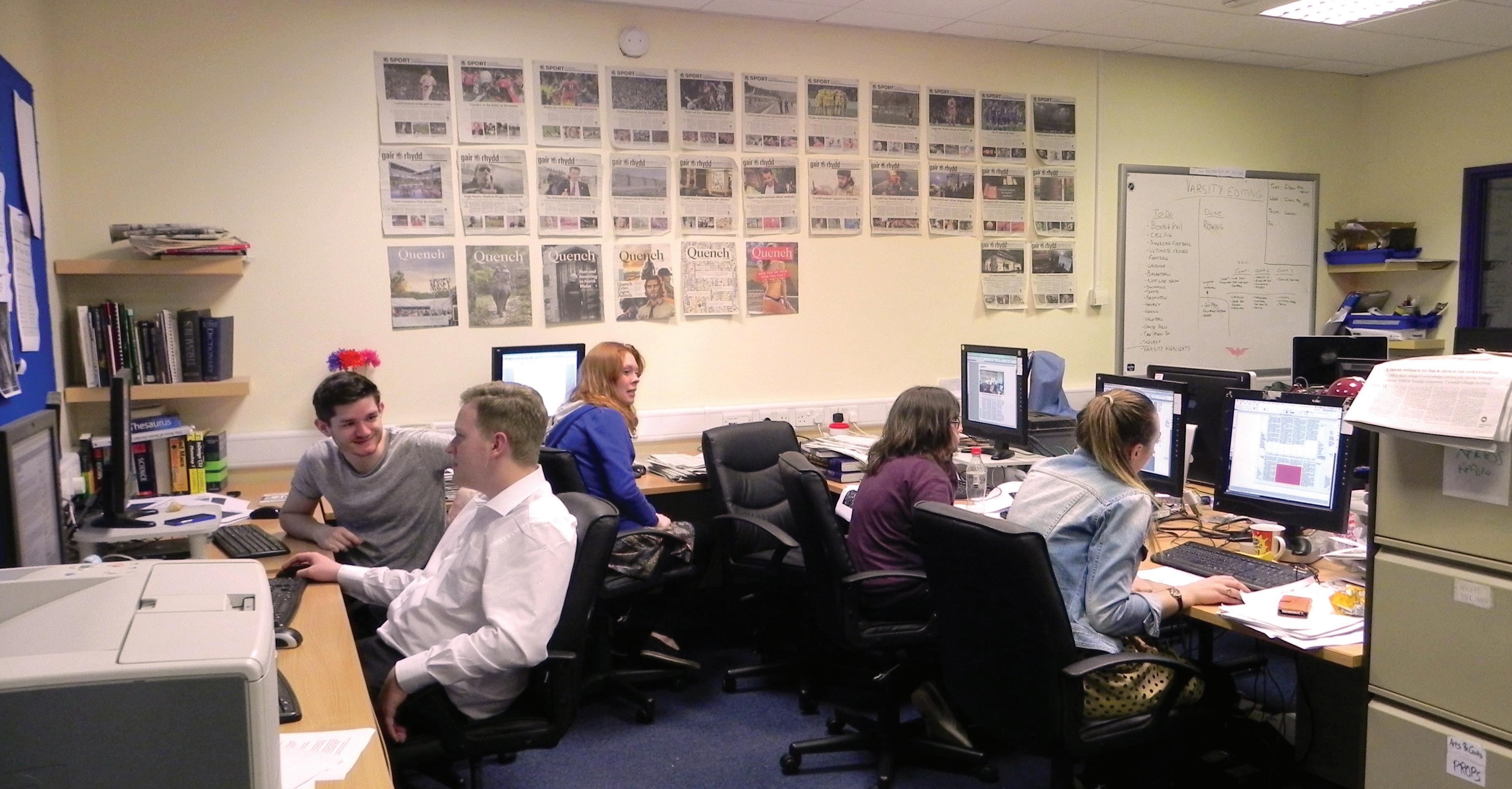
How to get involved with
Gair Rhydd:
a word of advice from next year’s
editor
Joe Atkinson
When I sat down in the Taf for the first time during the Fresher’s of my first year I picked up a copy of Gair Rhydd and noticed that the position of ‘Cardiff City columnist’ was available in the sport section. Fancying myself as a sport journalist, I applied, and was lucky enough to get the gig.
No prior experience is required to be a section editor, though passion for your work and commitment to the job certainly are
Tis coming Fresher’s I’ll be editor of Gair Rhydd, having climbed the ladder via the position of sport editor that I’ve held during my second year. I’ve been incredibly lucky to have learnt from a group of talented and encouraging people, but it just goes to show how taking a small step and working hard can really lead to bigger things. I implore anyone interested in a job in journalism or the media to get involved with us – you never know where it could lead you.
If you are reading this as someone who has never contributed to Gair Rhydd, it is extremely easy to do so. We run editorial meetings every Monday to shape and discuss the coming issue’s content. Te last of these meetings of this academic year will take place this coming Monday (June 1st), so if you’re interested in seeing what goes on during one of our meetings, I’d strongly encourage you to come along.
We post all of our articles on social media following the Monday meetings. Search for and request to join the ‘Gair Rhydd contributors (14-15)’
group on Facebook to volunteer to take an article – don’t be put off if you don’t think you have the required experience, this is a learning environment for all, and feedback will be provided promptly by editors to show you where you’re going right and wrong –the buzz of seeing your name in print for the first time is amazing, and Gair Rhydd gave me that opportunity.
Te newspaper is designed on Adobe InDesign (the bane of many section editors’ lives) on Wednesdays and Tursdays ready for our Friday evening deadline. Proofreading takes place from 6pm onwards on Tursday evenings to help clean up all of the little mistakes that inevitably litter the first draft of the newspaper. Tis proofreading is open to absolutely anyone who wants to get involved and takes place in the student media office on the third floor of the Students’ Union.
If you want to become a section editor on Gair Rhydd, applications are currently open for as long as it takes to assemble a full editorial team. A good editor will be a good writer and have a sharp editorial eye, but most importantly will dedicate themselves to the role. You can find the application form on the Gair Rhydd website, with positions available in News, Advice, Comment, Politics, Science, Societies and Sport. We are also looking for a new columnist. It is important that I stress that no prior experience is required to
be a section editor, though passion for your work and commitment to the job certainly are.
In many ways Cardiff Student Media is about gaining that experience. Working on the Gair Rhydd team as a sport editor, I have seen every single section develop into diverse, talented and fascinating reads week-on-week, and that comes down to constant practice and dedication. I certainly wouldn’t be in any shape to edit the newspaper if I hadn’t honed my skills by putting in the legwork every week.
Not only are the skills that you pick up priceless, but the friends that you make also make the whole experience worth it. I’ve developed friendships with the whole Gair Rhydd team during my time so far, and relish putting together a whole new editorial team to continue the legacy laid down by the most talented group of people that I’ve had the pleasure to work with.
Obviously I have a vested interest in getting you to sign up to contribute to Gair Rhydd, and I am more qualified to talk about how to get involved with us than anything else. However, if newspaper journalism isn’t your thing, then there are plenty more avenues that you can explore in Cardiff Student Media.
Our colleagues at Quench magazine produce absolutely beautiful, interesting and unique issues every month and have an abundance of content for you to get your teeth into. Emily Gib-
lett will be taking over as editor from the fantastic Sum Sze Tam, and you’ll be able to write, review, illustrate or take photographs for them soon.
Of course the print side is just one aspect of CSM. Xpress and CUTV are award-winning broadcasters which produce a wide range of content, from comedy to sport, news to drama, and everything in between. Xpress broadcast daily from early morning to late at night, allowing plenty of airspace for almost any kind of radio show that you can think of – all you have to do is pitch your idea for a show and you could be taking over the Cardiff airwaves.
CUTV are an excellently run and extremely professional group, and much like Xpress they will be looking for new contributors and members of their executive committee, as many of the current team move on as their degrees come to an end. CSM’s television channel produces broadcastquality material every week, and not only caters to aspiring presenters, but also helps those who are interested in producing and editing to develop their skills.
Student media only exists because of the hard work and dedication of its contributors, so I implore anyone with an interest in a job in the media or journalism to get involved and help us to improve what is already an amazing setup at Cardiff Student Media.
Pictured: Some members of our editorial team working in the student media office
If you have never contributed to Gair Rhydd before, it is extremely easy to do so
“ ”
(Photo: Sum Sze Tam)
“ ”
Michael
O’ConnellDavidson
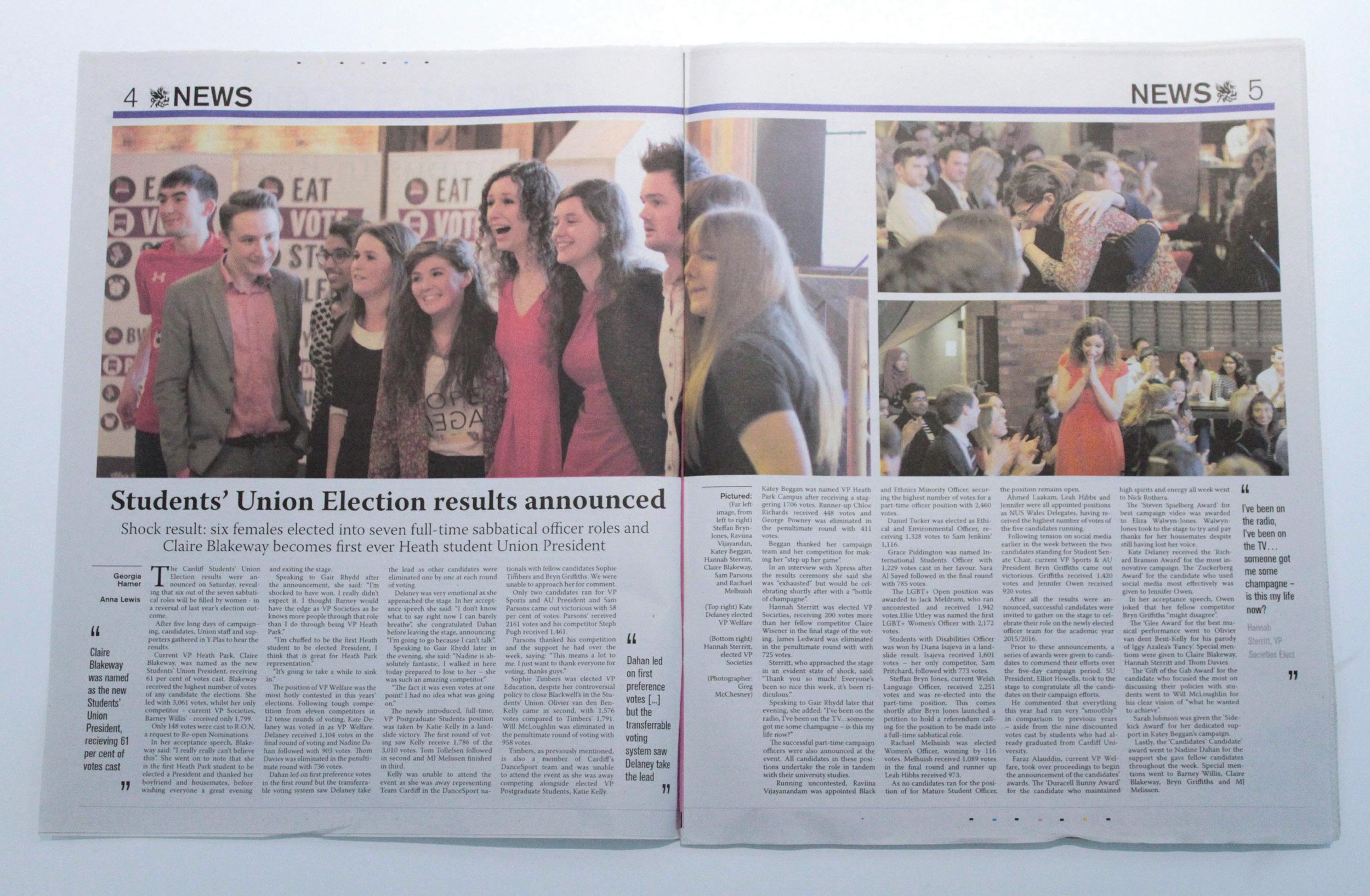
Writing for Gair Rhydd, from pitch to print
How to take a great idea and get it in the paper
Writing for the media is complicated. When you’re producing anything that might be published or broadcast, you’ve got to think about three things: your audience, your editor, and yourself. Tat’s scary for a lot of people, especially those at University. Most students I know can barely dress and feed themselves (and I am square in the middle of that camp), and nobody relishes the idea of anyone picking over their work. Exam markers and seminar leaders are bad enough - but the wider public? It’s enough to keep anybody up at night, and it often does.
Luckily, we’re here to help. I’d like to kick off by saying that while writing for
Pictured: Your work could make headlines next year
(Photo: Greg McChesney)
the media is complicated and difficult, it’s also transformative. It opens your mind to new ideas, toughens you up, and will strengthen skills you never knew you had. I don’t know anybody who’s written for the media over a sustained period and hasn’t gained anything, and I know a lot of writers - be they journalists, bloggers, or anything else. If you’ve been reading Gair Rhydd this year and you’d like to get involved next year, then here’s a special advice piece about how to write for us. “But I’m leaving,” some of you might say. Well, we’ve got you guys covered, too. Gair Rhydd emulates a professional publication, and much of what I’m
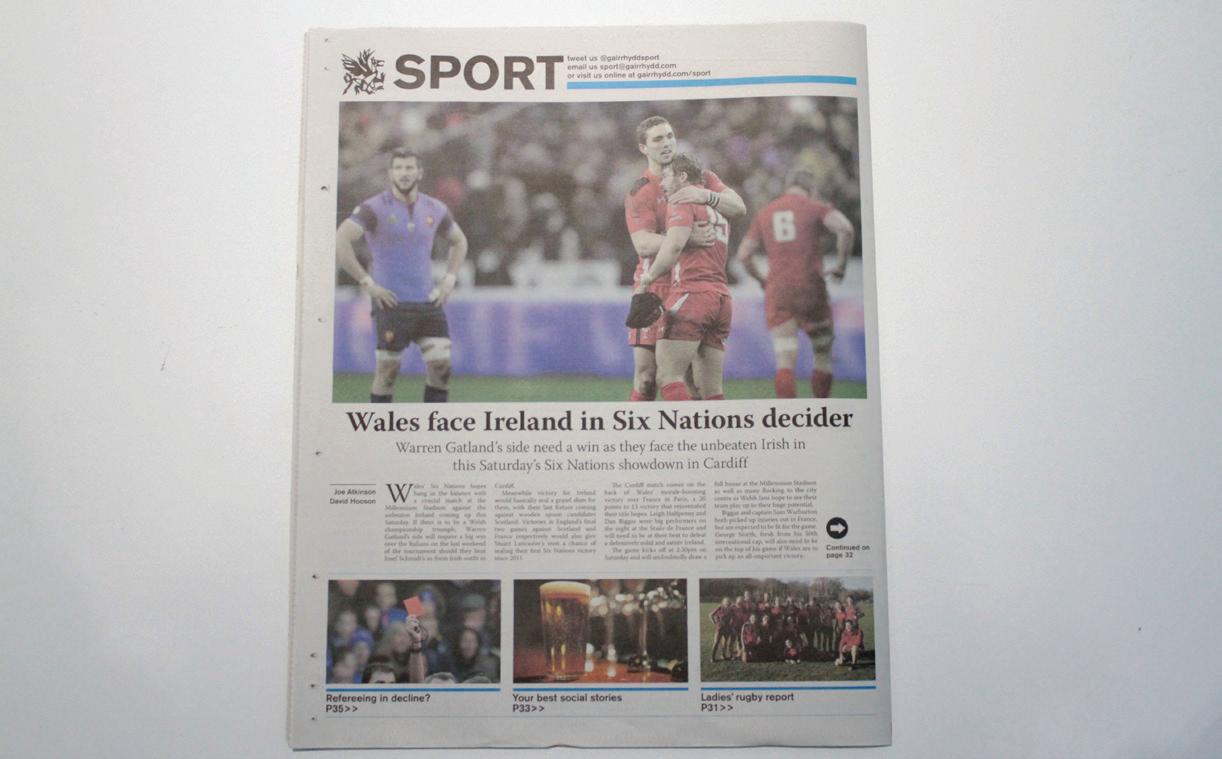
about to say will apply to 99% of the newspapers and magazines you see on sale.
THE IMPORTANCE OF THE IDEA
In previous years, both Gair Rhydd and Quench used to simply offer article ideas out and raffle them out to those who attended meetings. Tis has changed, because that isn’t what editors do in the real world; ideas are valuable, and if they have an idea that’s worth writing, they’ll keep it to themselves.
What we’re looking for today is for people to bring ideas to us. Now, that might sound daunting - because who wants to be that guy who says “I’ve got an idea”? - but I’ve spoken to literally hundreds of editors over the past few years. Not one has sneered at anybody for pitching an idea to them. Even the very worst ideas are met with a uniform respect for people willing to put themselves out there and say: “Hey, this is what I think you should be writing about.”
Why? Because those ideas are what makes a publication worth reading. A narrow staff leads to a narrow pool of ideas, and ultimately leaves the publication worse off. If you want to write for Gair Rhydd or anywhere else, you need to approach the world with a
critical eye.
It’s fine to be a Conservative, but not to be conservative: you need to look around you and think about what needs to change, what’s changing, and what your experience tells you about what’s currently happening. Don’t simply accept things for what they are, but tell it like it is. Is something bullshit? Make the world listen.
We’ve had some great writers this year who’ve used their experiences to introduce a topic. Saddichha Pokharel’s article in a recent issue about the earthquakes in Nepal was a brilliant piece, born of her life and cultural context. Gareth Evans was very proud to have commissioned an article from Georgia Lubrani about the N.A.T. bus advert controversy, and he was right to be, for she was instrumental in seeing Dapper Laughs’ gig at Cardiff SU scrapped and has made herself a distinct voice in Cardiff ’s feminist community. She was the perfect person to offer comment.
Both Lubrani and Pokharel are distinct figures, and their voices add to the conversation because of their unique experiences. Now, you might think that you’re boring. To be clear, nobody is: everybody looks, thinks and acts differently, and every perspective is valuable. So think about how you fit into society and current affairs, bring that to an editor, and say: “here’s what I think.”
Much of what I’m about to say will apply to 99% of the newspapers and other magazines you see on sale
9 ADVICE
Pictured: A spread from our election special
(Photo: Greg McChesney)
“ ”
10 ADVICE

Continued from the previous page
Editors want writers who don’t write for the sake of it, but writers who care about the piece and the publication
Of course, this mostly applies to opinion writing. But thinking that something is wrong has motivated some of our best news coverage this year. Te Living Wage story that ran a few issues back came from a discussion we had in the office; we resolved that it was absurd the Students’ Union could come out and publicly encourage the University to become a living wage employer. We didn’t know how or why it was absurd, and what our angle was. We just knew that something was wrong. Tat motivated our investigation, and the rest is history.
What I want people to take away from this is that ideas rarely just come to you. Tat’s not to say you need to have a press card and henceforth go around asking people questions until you find a scoop. It’s to say that you need to be intellectually and ideologically adventurous. Tink differently to other people (or at least more) and you’ll start generating ideas that editors - and audiences - want.
PITCHING TO EDITORS
So you’ve got an idea. You’ve got a fresh perspective. You’ve got an experience you want to talk about. You’ve seen something you think is fucked up, or somebody’s said something that you just don’t think rings true. What now?
You need to get in touch with an editor. I don’t mean the editor of a publication (they rarely look at their emails), but a commissioning editor or desk head - somebody who makes day-to-day publishing decisions. You’re looking for people with titles like News Editor or Comment Editor. If you take a look at the editor list on page two, you’ll see the names of everybody who makes Gair Rhydd happen, and there’s emails for sections scattered throughout the paper. Pick a name and send an email - because really, what’s the worst that can happen?
And that goes for any publication. Te worst that will happen is that whoever you email will say no, or that you simply won’t hear back. I have never heard of a publication maintaining a black book of names they’ll never speak to again, and sometimes, rejection is what we need. If you have an
Our politics section covers wideranging issues
(Photo: Greg McChesney)
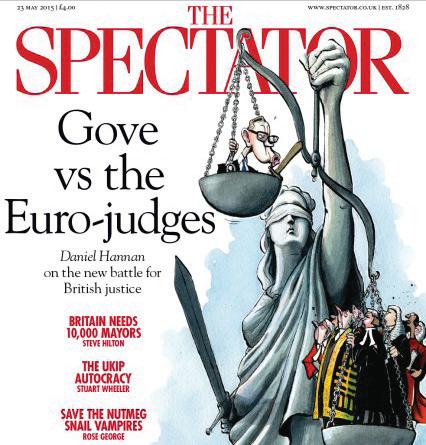
idea you think is great and somebody says it’s not for them, consider it an opportunity for reflection or take the idea somewhere else.
Tere’s no one way to pitch an editor. You just need to include some crucial bits of information: you need to say what you actually want to write about, and why it’s important. Sometimes editors might not understand why an issue is a big deal - so make them understand. It may also help to say why you’re the one that should be writing it. If you’re writing about orphaned children, knowing you’re from a similar background will completely change the way an editor considers your pitch.
Ready to take your work to the next level? Well, every publication is looking for pitches. From Te Guardian to Te Spectator, from the New Statesman to the New Scientist, anybody can find a place to fit in the freelance economy. Journalism is very competitive, but lots of people are journalists, so get stuck in and start forging relationships with editors as early as you can.
WRITING
STORIES: DOS AND DON’TS
Great news! Your pitch has been accepted. So what now?
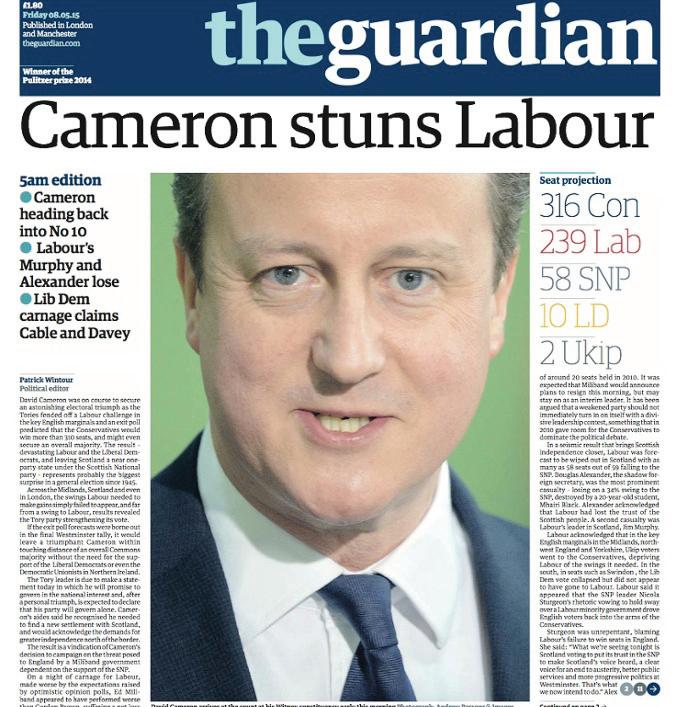
You might be in the awkward position (and I have been in this position more than once) of not knowing basic details, such as your deadline, your word count, or, if you’re writing for a for-profit publication, how much you’re getting paid. Don’t be afraid to ask, and make sure you do as early as possible. Editors are forgetful beings, and often they’ll move on to another pitch or their own work once they’re done speaking to you.
I’ve been in a shitty situation in the past where I had an article greenlit for a national newspaper, but real life got in the way. By the time it came to lock down the nuts and bolts, the editor had lost interest and moved on, and I’d missed my opportunity. Remember, nobody’s ever got in trouble for asking questions, so don’t be nervous: as long as you’re being genuine and not vexatious or awkward for the sake of it, nobody will think bad of you.
Once you’ve got everything you need, and you’ve started writing, you should keep an eye on the national news. Even if you’re not writing an article with any immediate context, there’s the possibility that something might happen to change the way your audience will read your article.
Editors love it when contributors take the initiative here. Writing about a changing topic? Ten deliver a piece that’s bang up to date, because even if it’s not quite what they agreed to, no-
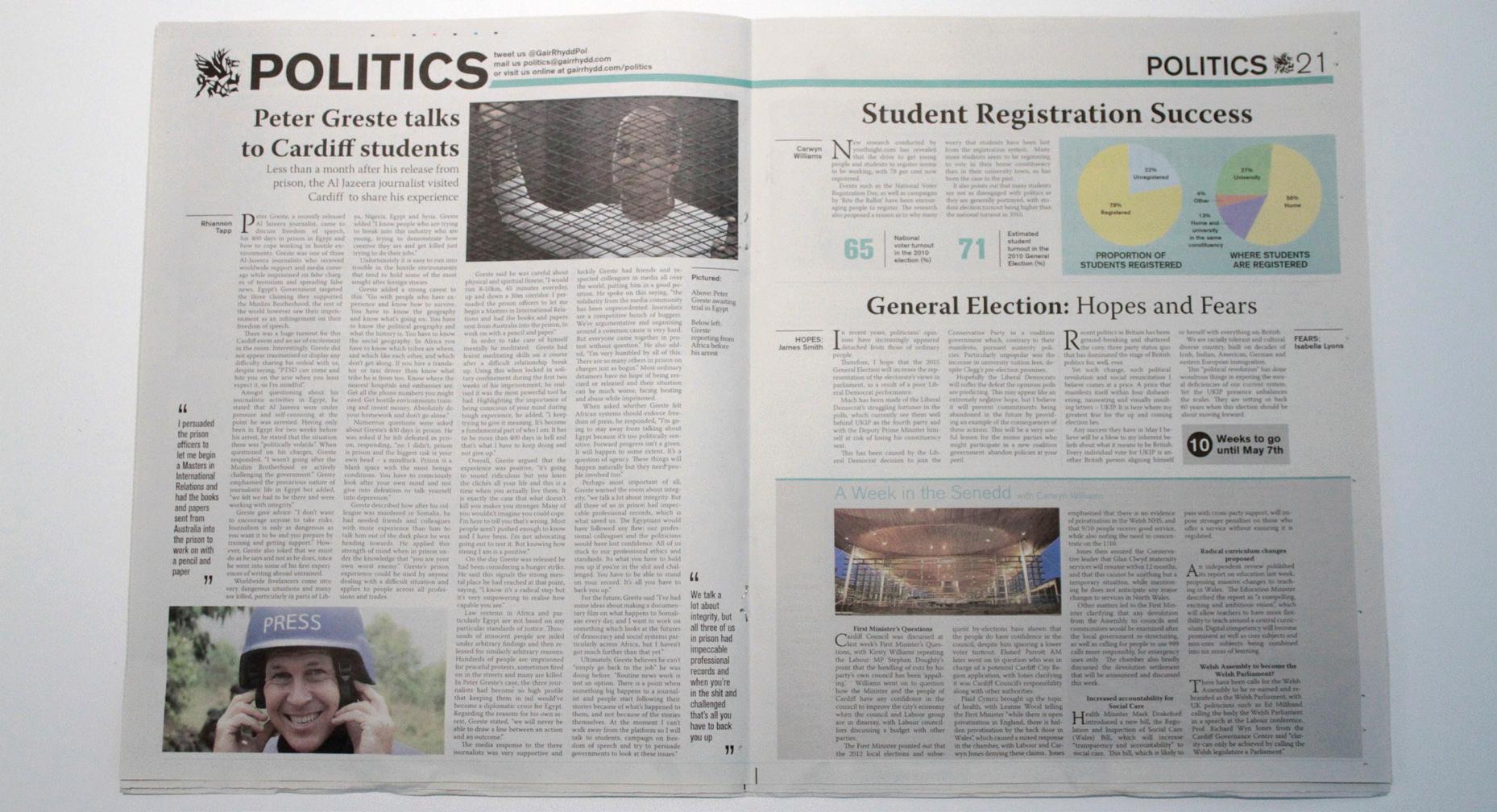
body wants to read old news.
But don’t ignore your editor’s requirements. Don’t fudge the deadline and not tell them. Don’t ignore the word count without justifying it first. If you’ve discovered something amazing, you might be justified going over it - but give them the heads up before you do anything like that. I’ve spoken to editors who have been baffled by contributors on a variety of publications, and in nearly every instance, a little communication would have sorted everything out.
FINAL POINTERS
You should absolutely keep following an article once it’s been published. If there’s backlash, or some sort of significant update, then you’re the best writer to tackle that with a follow-up. And you should definitely promote an article on social media. Editors love that: they want writers who don’t write for the sake of it, but writers who care about the piece and the publication. Tey want writers who will take the time to write and then take the time to make sure people see their writing. If someone gives you a page (or even two!) to yourself, don’t shrug that off. Drop a link to your Facebook page or tweet it out - people notice. Don’t forget that there are more jobs than just jobs for writers out there. Tis works two ways: it means there’s a lot for you to get involved in. But it also means that any issues won’t just affect you. If you’re late submitting an article, it’s not just your editor that’ll be inconvenienced. It’ll be their editor, the guy who runs the website, and any associated production staff who’ll have to reschedule around you. Don’t be the problem: be on time, every time.
Other than that? Just do what you do best. And don’t forget that you’re writing for yourself as well as for everybody else. Don’t just take opportunities because they’re there, because doing something you don’t love will just leave you burned out. In dire cases, never forget that it’s your right to refuse to put your name to an article if being associated with it leaves you uncomfortable. You want your work to stand the test of time: so do what you know you’ll be proud of in the long run, rather than just what works in the short term.
you might write for one day
Now, you might think that you’re boring. To be clear, nobody is: everybody looks, thinks and acts differently, and every perspective is valuable

What do you think? Have your say: advice@ gairrhydd.com
”
“
Pictured: Te Spectator and Te Guardian, famous publications
“ ”
Pictured:
Fitness to Practise
Plagiarism
Appeals
Disciplinary
Extenuating Circumstances
Exam Misconduct
Interruption of Study
Complaints
Student Advice
i Fyfyrwyr Member
Cyngor
Alexander Norton
The gloom further pervaded by the media’s oddly masochistic obsession with our purported lack of prospects
No future for you
Or so the media tell us - but graduation won’t leave us in the dark after all
For the last three years I have stubbornly avoided thinking of the future, an approach that has been made somewhat difficult by the fact that it is perpetually transitioning into the present. But in these, the end of my academic days, it is time to grab the bull(shit) by the horns.
Last week, I fulfilled my final academic obligations. In a fortnights’ time, I will be forcibly removed from the Gair Rhydd office. Te same humiliating ejection will occur at my rented accommodation before too long. It’s a nadir that all final year students must face; the imminent prospect of a loss of purpose, home and income. Tis is a bleak set of circumstances if ever there was one, with the gloom further pervaded by the media’s oddly masochistic obsession with our purported lack of prospects. “Tere has never been a worse time to be a graduate!” they yell into our startled faces.
Tat, of course, is a generalisation – for example, if you find yourself bestowed a degree in medicine, law or engineering, you’ll be making an honest buck or two soon after departing this fair institution. Tat’s fine, you’ve earned it. Unfortunately,
I studied Journalism, Media and Cultural Studies, which imbued me with the kind of skills that are required by nobody except the shady PR companies to which I am now desperately attempting to sell my soul.
I only have myself to blame. Te UCAS form was one which I filled out with the kind of blasé swagger of a man who believed in the workings of the Mayan calendar. In line with their predictions, I am doomed. But fear not: the same is not true of everyone.
Last week, I visited a friend and graduate in Environmental Health –a qualification obtained from Cardiff Metropolitan University.
In spite of this black mark against his name, he’s attained gainful employment. It took him around six months to strike it rich, but at the age of twenty-two he’s living in a fairly idyllic location and earning in the upper regions of the £20-30k bracket. He plays golf. Admittedly, his skills are specialised. But each of us has more to offer than we think.
You’re at Cardiff University, so without wanting to blow smoke up our collective arse, you’ve got a highly respectable academic history to fall back upon. You’re also doing a more

valuable degree than me. Realistically it won’t come at the first attempt, and you might have to do some grunt work in the meantime, but eventually your desperately flailing lower limbs will happen upon some sort of career ladder.
Tese are difficult times, it’s true. But look at the wider picture: in this country, you’re one of around thirtyfive percent of people who have degrees – and yours is from a Russell Group institution, no less. You’re in a good place.
If you trail your Facebook timeline, you’ll find dozens of friends who dropped out of school at sixteen with a handful of GCSEs and vague aspirations of working at Matalan. Te majority of them, you’ll almost certainly find, are not only surviving but doing so happily.
Please don’t perceive this politically, but we live in one of the most prosperous nations on earth with an economy that is – slowly – recovering. Within that immensely privileged ecosystem, your starting point is an advanced one.
I’m aware that it’s a terrible cliché and patronising to boot, but your post-graduation plight is more likely to be of a temporarily bothersome nature than anything like the long term malaise faced by millions. Your prospects even compare favourably with your own current status – for wherever your working life begins, it will surely be a step up from sharing a mouldy CPS home and eating baked beans from the tin. And me? Well, I’m never likely to earn enough for the debt repayments to kick in anyway. So I win.
Don’t fool me online: the consequences are serious
Social media is a powerful tool. But we shouldn’t be using it to fool each other, nor to spread lies
(Source:
are
Within that immensely privileged ecosystem, your starting point is an advanced one
Em Gates
It’s no secret that social media isn’t exactly a viable source of accurate information. If you believe half of the Facebook statuses you see on your timeline, the majority of my friends would be alcoholic party-goers or hugely political protestors. Tis obviously isn’t the case, but does it mean that information on social media is all lies?
Social media rarely, if ever, tells us the entire story
Not necessarily. Te one golden rule to remember with social networking and the reliability of information posted is that it is all manufactured. Instagram posts are constructed with filters that highlight or hide certain features that the user wants to, Anna Kendrick’s hilarious twitter feed is carefully constructed with her publicist, and Facebook photos only show brief snapshots of an event – one that might not have been as enjoyable as it looks. Social media rarely, if ever, tells us the entire story. All of these platforms are ways of us making us look social or attractive or funny, they aren’t solid foundations for judging a person’s
character. I’m not saying that they are all lies, but no one’s page shows an accurate presentation of themselves, or indeed the truth. I’m the kind of person who will stay up until 3am watching back-to-back episodes on Netflix, but if you look at any of my profiles, I look like a hardworking and fun student with an excellent social life. My Netflixbingeing isn’t all that interesting – I definitely omit boring bits and the personal parts of my life from social media, because they’re not parts of my life I want people to see. Omissions can be just as deceiving as all-out lies. Just because someone posts something, doesn’t mean that it’s true, in fact half of the time it’s far from the case. For example, any Yik Yak user over the last week would have seen the local internet buzz over an event that happened in Talybont residences. Unsure of what it was to begin with, Yaks then began flooding in detailing helicopters over the halls and reports of a brutal gang knife fight, police vans, a suicide and a drug deal
gone wrong. Te only fact known to the public currently is that a 20 year old student died, and all other information is just speculation. Later, a YikYak user took it upon themselves to name the man who had passed away – sincerely, I am sure, but not right at a time when he has not been named to the public. In this way, social media is not only unreliable, but can actually be dangerous and disrespectful. Rumours have been flying about like no one’s business when the real news should be that we have lost a member of our community. Mostly, we should pay our respects to the student, not speculate and gossip about the nature of their death. But in a scenario where you can say whatever you want with no prior knowledge about the event, all from the security of behind a laptop screen or smartphone, rumours are going to be rife. It’s just up to us to take each and every piece of information gathered from social media with a pinch of salt and not contribute to the problem by posting things we don’t know to be true.
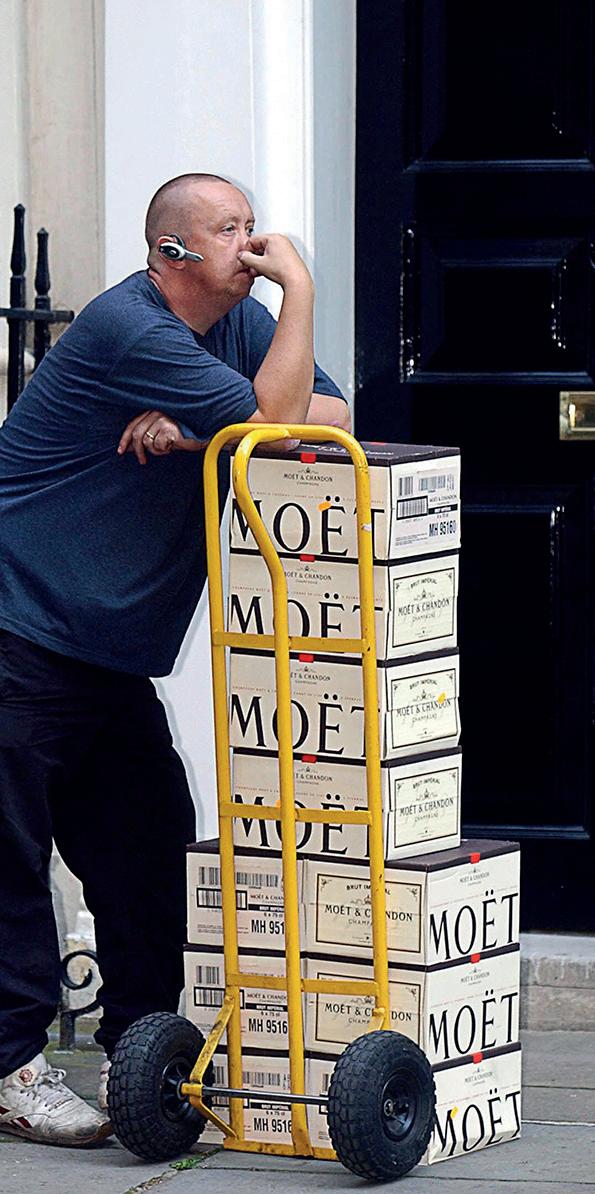
champagne was supposedly waiting on Downing Street for a Tory government in a time of austerity, after the general election this year. Te image is actually from 2004, and social media was responsible for spreading this misinformation
(Source: Martyn Heyhow, Getty)
COMMENT
tweet us @gairrhyddcomment email us comment@gairrhydd.com or visit us online at gairrhydd.com/comment
“
”
“ ”
“ ”
Pictured: Graduates
not left in the dark like the media shows us.
Luftphilia, Flickr)
Pictured: Tis

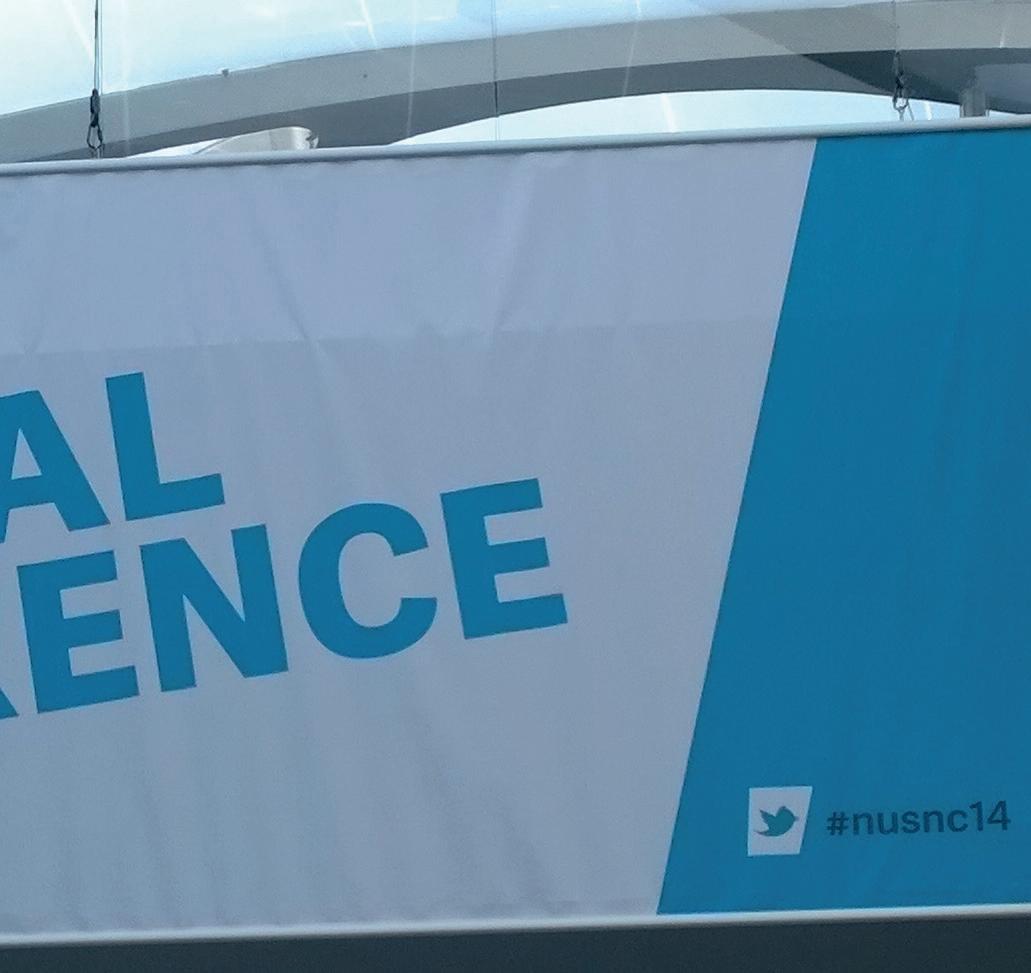
Why the NUS is unfit for purpose
Tis organisation is hypocritical and unrepresentative. It needs a cultural and structual revolution
The National Union of Students is fond of bold claims. Its website reads like the vision of a humanitarian charity or some wildly utopian dreamscape. Tey claim to ‘fight discrimination, isolation and injustice’, while promoting (buzzword alert) ‘equality of opportunity for everyone to participate fully in a society that celebrates diversity.’ Tese are noble aims, obviously, and there is nothing wrong with idealism. However, when it is costing thousands of pounds a year and profiting hugely from the student body, one should expect some substance to their rhetoric.
students who are struggling to pay their way or are in dire need of more contact hours and better services; issues that the NUS should be taking direct responsibility for.
This organisation has shown an unwavering commitment to their own uniform agenda
Sadly, this is hard to come by at the NUS. Beneath their catchwords of ‘diversity’, ‘change’ and ‘inclusivity’ it really is quite difficult to see how they have benefited the daily lives of students at all. Rather than focusing on issues that affect all of its members, such as increasing bursaries, contact hours and university standards, this organisation has shown an unwavering commitment to their own uniform agenda on party and international politics.
Why on earth, to take one example, is the National Union of Students debating and passing policy on the Israel-Palestine conflict? Tis is not only laughable (I struggle to imagine Netanyahu calling a ceasefire because the NUS have wagged their finger at him) but it is an insult to the many
I will admit to laughing for longer than I should have at this headline from Te Independent, which I think, quite beautifully, encapsulates this very problem: ‘NUS motion to condemn Isis fails amidst claims of islamophobia’. Let that sink in for a moment, and then help me decide which part is worse: the idea that the NUS felt it necessary to ‘condemn Isis’ (Oh really, you’re not a fan?) or the fact that some of its members felt that doing so would be discriminatory.
Tis organisation has become a self-parody and has done more to damage the reputation of student politics than it has to benefit its seven million members. I would encourage its elected representatives to replace this narcissistic, self-indulgent, nonsense with pro-active education policy. Maybe then they will begin to appear less drastically out of touch. Te NUS’s insularity can be attributed to the fact that they are not very diverse at all. In fact, for an organisation that claims to ‘represent the interests of more than seven million students,’ it is evident that they only represent the interests of one political party.
Every NUS President since
communist David Aaronovitch (1980-82) has been a member of the Labour Party. Tis homogenous mass has produced numerous Labour MPs (Jack Straw, Charles Clarke, Phil Woolas, Stephen Twigg and Jim Murphy to name a few) and one life peer. How can an organisation as insular as this have the gall to suggest it represents ‘7 million student voices’? Te NUS is one voice, with one message, and it has been droning on for generations.
At present, then, they are little more than fertile ground for the Labour Party to sow its own seeds. For decades, they have harvested politicians of the future and promoted their own agenda under the guise of student representation. Take the recent ‘Liar Liar’ campaign as a case in point. Tis campaign, which saw £40,000 of NUS funding spent on billboards alone, sought to criticise the Liberal Democrats for a five-year old broken promise that everybody already knew about. It is surely clear to even the most casual cynic that this was a political-attack ad in the run up to the General Election. What other purpose did this campaign serve than to discourage students from voting Lib Dem?
Tis isn’t the only example of this supposedly representative union showing their political bias. Last year, they passed a motion to officially oppose Ukip which aimed
to ‘make opposition to Ukip and the nationalist right a central part of our campaigning in the run up to the general election.’ With this in mind, I find it difficult to view the NUS as little more than a poorly veiled wing of the Labour Party. How can they simultaneously represent ‘7 million student voices’ whilst campaigning against the Lib Dems and Ukip?
Students who support these parties, or indeed any party other than Labour, will surely feel isolated by policies such as these, which is ironic considering their supposed commitment to ‘fighting discrimination (and) isolation’. Tey are only interested in fighting discrimination when it comes in a form that is appeaseable to their own blinkered agenda.
If the NUS are going to be taken seriously by the majority of students then it must put the self-righteous political posturing behind them and become a body dedicated to improving education. Ultimately, they need to be true to their word and not discriminate against students based on party-politics or ideology. Tis is the simple choice they face: to become a selfproclaimed Labour Party shill-set or do the job that they should have been doing all along. Represent the best interests of students, and campaign for improvements to education standards.
Last year’s NUS Conference (Source: NU: Life)
How can they simultaneously represent ‘seven-million student voices’ whilst campaining against the Lib Dems & Ukip?
”
13 COMMENT
“
“ ”
Pictured:
Gareth Evans





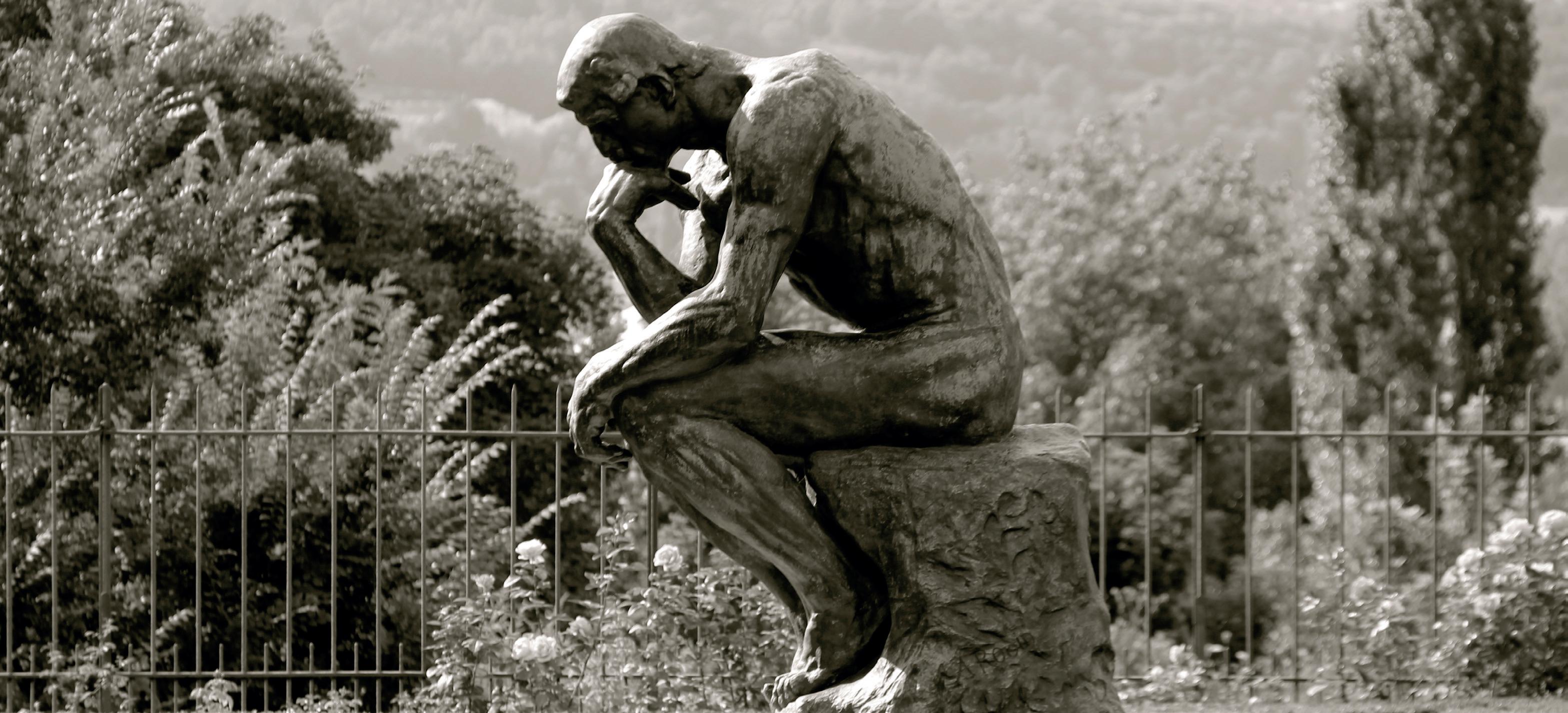
I want the third degree
Universities in England and Wales should improve our ability in a greater number of subjects. Why is the current system so rigid?
Greg McChesney
Every morning when I wake up I spend up to 10 minutes struggling with whether to shower first, or to eat breakfast. Showering hungry is a terrible thing, but if I eat while I’m still emerging from the drowsiness of the night before, the chances of getting back into bed increase exponentially. Needless to say, decision-making has never been my strong suit. I’ve always struggled to stay on one path for fear of missing out on something else, and my humanities degree was no exception.
First year humanities students at Cardiff are given the illusion of free choice
When I first dragged my bags across the mouldy threshold of Senghennydd Court I was studying English Literature, and yet now in the final few days of my academic career I have ended up doing Joint Honours Literature and Spanish. As it turns out, myself and the other joint honours students are somewhat of a rare breed; not because there aren’t many others who struggle with decision-making like I do, but because our university system is particularly unaccommodating for those who want a study program to match their interests.
Some might argue that attempting to match your degree and your interests are futile, that you should already know what you want to study at university before you even consider applying. Granted there are those that have their life planned out from the age of 15 years old, and while I congratulate them on their sterling organisational skills, to claim that all young people are as set in their ways
as that is absolute bollocks. Expecting a 17 or 18 year-old to fork out 27 grand (minimum) for a single area of study that they’re not even sure they enjoy yet is hands down the most batshit crazy idea concept that someone could come up with, and yet that’s exactly what happens every single year. Te single-minded approach to education is not universal, and thankfully there are several countries that adopt a far more fluid approach to degree programs, making sure that those –like myself – who enjoy life on the fence don’t get shafted by the current obstinacy of the education system. While it’s easy to take pot shots at America for their legislation surrounding firearms, or for their predilection towards all things fried, their university/college students have it pretty good. Teir degree programs revolve around a 4 year major-minor system: the first year of any degree is dedicated to introductory modules and improving general knowledge; second year sees the completion of the general knowledge classes while furthering your knowledge in the subjects you take interest in; at the beginning of your third year –once you have established whatever your interests may be– you can declare your major and begin the process of specialisation. A successful American student will graduate from university with a wealth of knowledge that can be applied to a huge number of disciplines, while students from the UK often spend years trying to
hammer their square-peg degrees into a round-hole job.
You don’t even have to leave this side of the pond to reap the benefits from a degree that actually focuses on educating the student. Scotland wields what many consider to be the ‘gold standard’ of university education, offering the same 4-year program that offers students a broad, thirdlevel educational foundation whilst still retaining the opportunities for specialisation that the rest of the UK is so maniacally obsessed with.
While the Scots revel in their broad-based university education, the Welsh are not so fortunate. First year humanities students at Cardiff are given the illusion of free choice; if single honours you will study your chosen subject ‘plus two additional subjects’. You should know, however, that your academic school may ‘strongly recommend’ an ‘especially appropriate’ subject for the chosen degree program.
As someone who made this ‘choice’ in first year I can tell you it wasn’t free. Naïve and positively clueless, I was shepherded into one of those ‘especially appropriate’ choices, and I immediately realised it looked suspiciously similar to all my other Literature modules. I thought I was lost in a sea of literary pretense and Shakespeare, but unbeknownst to me, a throwaway choice of Spanish as my third optional module (because ‘fuck it, it’s only first year’) changed my entire university life. My choice outside of my
degree programme made me realise that there was a whole other world of study and opportunity outside of the blinkers that had been put over my eyes. Te tiniest of glimpses at that ‘broad study’ concept that Scotland and the US (amongst several others) have adopted changed everything for the better; I have another language under my belt, I’ve had a year in a foreign country and have massively improved my previously paltry employment opportunities. All this happened because I stumbled into the simple concept of changing my mind. Students should be allowed to change their minds. Education is all about changing your mind, about challenging previously held assumptions and allowing acquired knowledge to influence and nuance your decision making process. If a university allows students change their minds in the manner above, but completely disallows them the opportunity to change their mind in any other measure, then any education the students are left with is almost self-defeating. Te dominant UK education system at the moment is focused on producing highly specialised but completely inflexible professionals, perhaps if things were a little less focused on pre-packaged degree programs, and a little more focused on actually educating the student, we might actually stand a chance against the oncoming tide of unemployment that awaits us on the far side of uni life.
university should be expanding our horizons more than it is now.
Students should be allowed to change their minds
15 COMMENT
“ ”
“ ”
Pictured: Te Tinker
(Photo: Renaud Camus, via Flickr)
16 JASON ROBERTS VS THE WORLD
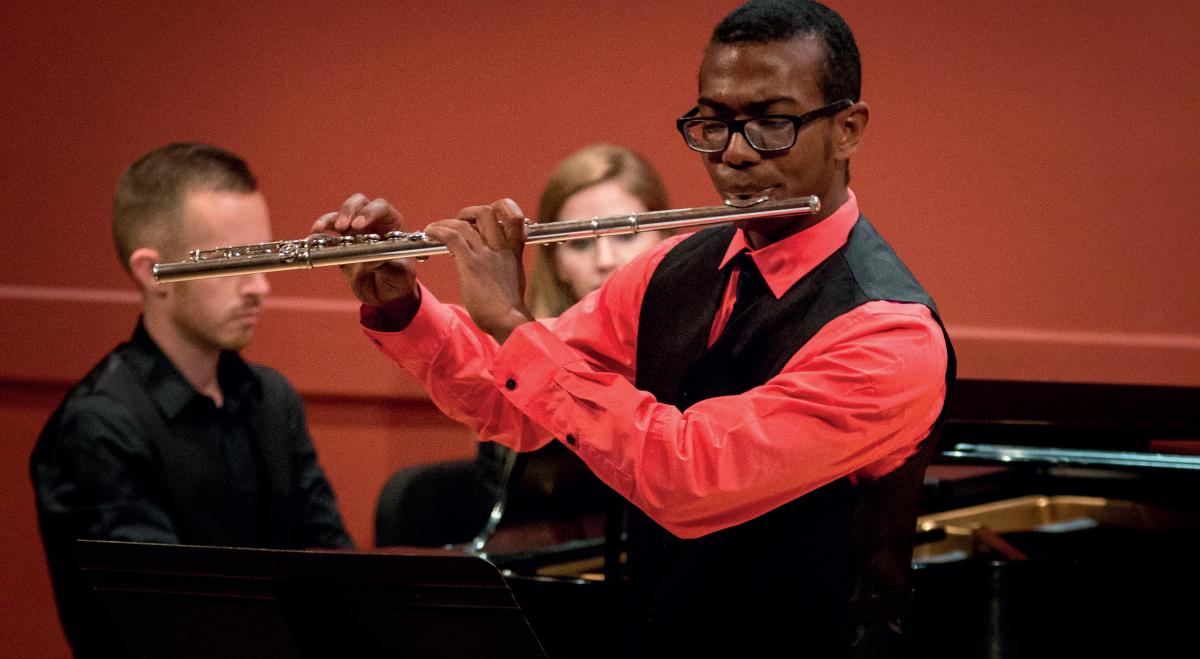
Te Magic Flute
Examining the special relationship between the UK and the US, banter, and Azeem’s senior flute recital
Jason Roberts
This is what Americans will never be able to understand about the British, the ability to draw humour from the most unlikely of places
From a young age, we’re told that Britain is great. It’s in the name and everything. It’s not Okay Britain. It’s not even Good Britain. It’s GREAT Britain. Te fact that this is drummed into us as soon as we’re born is perhaps a tad unusual, what with our national distaste for overt displays of pride and patriotism. But what’s even more unusual is that we’re told this at all. Britain hasn’t been ‘great’ for a long time. We drive German cars to work, where we use our phone made in China, then we’ll go home to eat Indian food while watching American programs on a Japanese TV.
Tere is, of course, nothing wrong with this. If anything, it serves to show that Britain is truly a bastion of multiculturalism and modernity, something that we should be proud of. It is not this vision of Britain that we evoke when we say Britain is great. When we say Britain is great, we conjure up visions of Churchill and his speeches, of the Empire that spanned a quarter of the world, of a time where British cultural values were dominant across the globe. In our minds, British greatness is associated with the imperial and military successes that occurred long ago. It is why now, in the absence of any military or cultural superiority, that Britain finds itself a nation constantly in the shadow of the one true Western
superpower: the United States.
Our cousins have many things that we do not. Tey have a superfluously humungous army, presumably compensating for something. Teir cultural products like their music, food and television are clamoured for around the world, as opposed to British culture, which isn’t even wanted here. Tey even stole our language and added more z’s, to the point where it’s almost unrecognisable. America exists as Britain did 150 years ago, affecting lives all over the globe for better and worse. Britain is now a bystander on the international stage, where once it was a main player.
So, as Brits, what are we to do? Do we sit back and watch ourselves turn into Portugal, another imperial power that couldn’t quite emerge from its post-colonial hangover? Do we go gently into that good night, drinking Strongbow from plastic bottles and watching England lose on penalties for the rest of eternity? We do not. Instead, we respond the only way we know how, by taking the piss out of something only the British would ever find funny. In this particular instance, that something happened to be Azeem, and his senior flute recital.
For those that have been living under rock, or unable to connect to the outside world because eduroam is
made of cocktail straws and powered by gerbil piss , an American college student by the name of Azeem Ward was set to perform a flute recital last week, as part of his music degree. Like most of us who want to guilt people into attending our functions, he created an event on Facebook. Now, had he made this event private and invited only a select few, the world would not know his name. But to the delight of everyone, Azeem did not do this. Consequently, his event was bombarded by thousands of Brits, for no other reason than that most dreaded of words: BANTER. Within a week, over 80,000 Brits had RSVP’d to Azeem’s performance. Not since Ron Burgundy broke all the tables and glassware at Tino’s had a flautist been in such high demand. And just like that, Britain regained the upper hand in our special relationship. Where Americans saw a simple flute recital, Britain saw the opportunity to make someone famous and confuse a load of Americans while doing it. Te real beauty of Azeem’s flute recital is that there were so many Americans asking, “Why? Why have they done this? Why is this funny?” Of course, they’ve totally missed the mark, failing to see that it was funny precisely because there was no intent behind it. Tis is what Americans will never be able to understand about the British,
the ability to draw humour from the most unlikely of places. It is a uniquely British tradition, and it is something that we all share.
Azeem’s flute recital showcased this to the world. It showed that Britain, despite living in the shadow of America, doesn’t really care that much.
You can have your world domination, served with a plastic 64-gallon cup of fizzy diabetes juice. But you’ll never know what a cheeky Nando’s is, much less have the opportunity to sample one. Americans don’t understand the concept of banter, because they look at how British people refuse to take themselves seriously and think, “Nope, this isn’t for us. Back to saluting the flag.” Could you imagine if someone asked you to salute the flag here? You’d ask if they were lost.
But Azeem’s flute recital showed us how badly we need America, and how badly they need us. Te Americans provide us with the biggest possible target for piss-taking, and while they might get a bit confused and angry from time to time, they need us to knock them off their perch every once in a while. Te special relationship has taken its toll in recent years, but thanks to the power of a man, a flute, and the Internet, we’ve rediscovered what our countries mean to one another. Bless you, Azeem Ward.
Azeem Ward impressed the world with his international recital (Photographer: Stephen Manga)
You can have your world domination, but you’ll never know what a cheeky Nando’s is
“ ”
Pictured:
“ ”

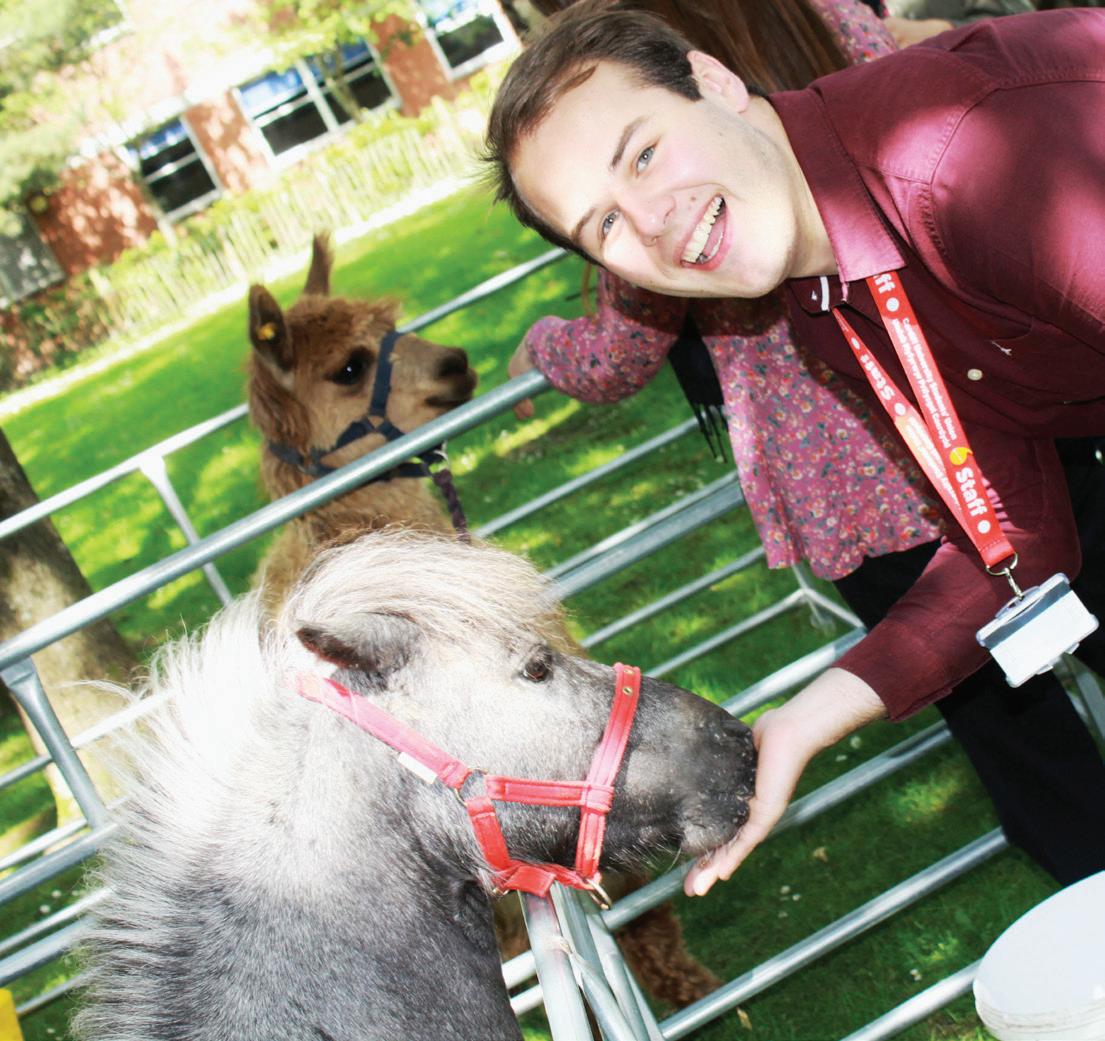

All

Continued from previous page
couples and marriage illegal. Approximately 95% of voters in the Slovakian referendum supported the amendments but it was invalid due to low turnout.
Te situation for LGBT people is generally worse in former soviet countries. A senior Latvian MP, Inga Priede, of the centre-right party, Unity tweeted: “Tank God! Te Germans shot them [homosexuals] in their time. Good for demographics”.
However, Foreign Affairs Minister Edgars Rinkēvičs of the same party tweeted that he was proud to be gay, and that he supported the idea of registered partnerships for all couples. Homophobia amongst MPs is also a

problem in Lithuania. Te MP Petras Gražulis introduced a bill to punish the “public denigration of constitutional moral values”, such as Pride events, with fines of up to LTL 6,000 (EUR 1,800). A case against Gražulis for attacking pride marchers in 2013 was dropped after MPs voted to uphold his parliamentary immunity.
Te 2015 Rainbow Europe Report shows that the two areas EU countries were doing worst in, with regards to protecting LGBT rights, were asylum and hate crime & hate speech. Te case of the Nigerian asylum seeker Aderonke Apata illustrates how our government fails LGBT asylum seekers. A high court judge ruled that Ap-

‘British Bill of Rights’ widely criticised, seems unlikely
The Tory manifesto, released in the run up to the General Election, promised a new ‘British Bill of Rights’ that would: “break the formal link between British courts and the European Court of Human Rights, and make our own Supreme Court the ultimate arbiter of human rights matters in the UK”.
The former Education, now Justice Secretary, Michael Gove has been tasked with leading the government’s controversial repealing of the Human Rights Act.
The former Conservative Attorney General Dominic Grieve has recently questioned what the government is trying to achieve. He told Sky News: “Is it merely a cosmetic change, or is it a desire to do something radically different?”
The latter would pose problems in relation to Britain’s relationship with the Council of Europe, he said, as well as the European Union, which requires its member states to adhere to the convention. He also stressed that the Supreme Court is “already supreme” and suggested the government was promising something that already exists, arguing that: “At the end of the day, what are the benefits going to be compared to the costs of
ata had fabricated a lesbian identity to gain asylum, despite the fact that she had been arrested and tortured. Sadly, the UK is far from the worst country at dealing with LGBT asylum seekers in the EU. However, some EU countries have made progress recently with Slovenia and Portugal recognising asylum claims based on sexual orientation for the first time in 2014. In December, the European Unions’ highest court ruled that asylum assessment procedures cannot violate the individual’s rights to human dignity and private and family life. Tis means that assessments cannot be based on stereotypes or include personal, potentially embarrassing questions. A review last year found that 10 percent of questions asked to British asylum seekers were unacceptable. In the UK over 4,000 homophobic crimes are reported a year but the government estimates that 39,000 actually occur. Last year Greece responded to an increase in hate crimes largely due to the neo Nazi party Golden Dawn by introducing a bill increasing penalties for incitement to hatred based on several grounds, including sexual orientation and gender identity. Hate speech is now punishable in Greece by up to three years’ imprisonment, and a fine of up to 20,000 euros and hate crimes can be fined up to 100,000 euros.
LGBT Rights in Europe
Nine of the 17 countries allowing joint adoption by same sex couples are in Europe.
The first EU country to allow joint adoption by same-sex couples and same-sex marriage was the Netherlands in 2001.
Denmark was the first country to legally recognise same sex partnerships in 1989
Cyprus was the last country to decriminalise homosexuality in 1998; France was the first in 1791.
Top five EU countries for gay rights:
1. The UK
2. Belgium
3. Malta
4. Sweden 5. Croatia
change?”
It has been speculated that a number of Tory MPs will rebel over these changes. Senior Conservatives including former Lord Chancellor Ken Clarke and former Tory Chairman Baroness Warsi also oppose the move. The latter blasted the proposals as: “An attack on the very values we were professing to promote”. Writing on Conservative Home, she said: “This could have been a moment at which to raise our eyes to the sunny uplands of a future united cohesive nation, in which the opportunities that this country has to offer are available to all. Instead, the plans feel like an attack on the very values we are professing to promote.”
The Human Rights Act, which received royal assent in 1998, aims to incorporate into UK law the rights contained in the European Convention on Human Rights (ECHR), drawn up by the Council of Europe in September 1953. All 47 European countries, with the exception of Belarus, are party to the convention.
The proposed changes have come much criticism because of this, with First Minister Carwyn Jones saying that the UK could become like a “banana republic” if it pulls out. Even if

the new Conservative government replaces the act with a promised bill of rights, the UK would still be party to the terms of the ECHR - whose post-war drafting, ironically, was overseen by Sir David Maxwell Fyfe, the British Conservative politician and lawyer.
Also criticising the plans, Charlie Flanagan, the Irish foreign minister, recently told the Irish Senate that the Human Rights Act “is woven into the structure” of the 1998 Good Friday Agreement between the UK and Irish governments and the protagonists in Northern Ireland’s sectarian politics. “The shared emphasis on human rights is part of
what makes the peace process credible,” he said. Additionally, Carwyn Jones has said: “Can anybody name one thing the Human Rights Act has done which merits its abolition?”
The Government of Wales Act 2006 sets out the fact that Welsh Ministers are prevented from making any legislation or undertaking any action incompatible with Convention rights as defined by the Human Rights Act.
Ultimately, whatever arguments, from left or right, made in the run up to the proposal coming to a vote in the Commons, are likely to meet substantial resistance from the government’s front bench.
19 POLITICS
Robert Thomas
“ ”
Pictured: Building of the European Court for Human Rights in Strasbourg (Photographer: Dominik Kreutz)
47 European countries, with the exception of Belarus, are party to the convention
Pictured: Vienna’s gay themed traffic lights (Photographer: Dietr Nagl)
Protesting against the oath of allegiance might not change anything, but it sends a strong message
Loyalty to the Queen, or the people?
The resurgence of the ‘protest oath’ begs the question of the practicality of the Royal Family in modern British politics
According to The Mail on Sunday, members of the Scottish National Party planned to spoil their oath of allegiance before taking their seats in Westminster last week. It isn’t the first time that MPs have scorned the oath in an attempt to display their solidarity with the people rather than the monarchy. In 1999, the Scottish Socialist Party MPs Tommy Sheridan and Rosie Kane both protested, Sheridan with a raised fist and Rosie Kane with ‘My oath is to the people’ written on her hand. It’s not the first time an member of the SNP has protested against pledging allegiance to the monarch, either – Alex Salmond, before taking the oath in 2011, pledged his loyalty to the people first, and to the crown second.
Members planned on either crossing their fingers while making the oath (as the Labour MP and staunch republican Tony Banks did in 1997) or taking the oath in Gaelic. Considering that the Speaker has allowed the oath to be taken in Gaelic, Cornish and Welsh for years, in addition to English, pledging in one’s mother tongue is less of a protest and more a proclamation of national pride. However, in crossing one’s fingers, the message is clear. MP for Edinburgh East Tommy Sheppard and MP for Glasgow East Natalie McGarry have both expressed their distaste for the pledge, even if they recognise that taking it and having
RIn Wales we also have lost the argument on the National Health Service
Alun Davies, Labour AM
a say is more important than relinquishing their seats. Perhaps, for them, taking the oath in protest is the answer.
The resurgence of the ‘protest oath’ does raise the question: is the Royal Family worth it? The debate mostly revolves around money. While a biased source to use, the organisation Republic suggests that the real cost to the taxpayer (including what they call ‘hidden expenditure’ – like their bills for security, for instance, which are paid by the Metropolitan Police) amounts to nearly £300 million a year. Compared with the official sovereign support grant of £36 million, this figure seems astronomical. But how much do they raise through tourism? The British Tourist Authority estimates around £500 million. Based on these numbers, the monarchy appears to pay for itself. What the BTA doesn’t take into account, though, is that many of these tourists don’t come to see the family themselves, but for landmarks – the striking beauty of Buckingham Palace, or the immensity of the Tower of London, for example. Unfortunately, whether or not tourists would still come to see these places if the monarchy did not exist is unquantifiable (unless, of course, it was abolished).
A more pertinent question to ask would be whether the Royal Family still holds any practical value in modern politics or if their presence in government affairs is undesir-
able.
Following the recent legal battle and subsequent exposure of the black spider memos, this argument has resurfaced with more vitality than ever, as a royal figure made obvious his political opinions to ministers.
Blogs with more liberal tendencies such as Left Foot Forward have branded Prince Charles an unelected figurehead using his powerful position to lobby governments, in relative secrecy, with no accountability. The Telegraph, however, suggests the Prince’s correspondence ‘kept ministers on their toes’, like a purse-lipped teacher ensuring their students aren’t falling asleep in class. Which would be fine if Prince Charles was a representative, elected figure, making sure ministers voted for matters that were important to the public interest. (N.B. The Prince of Wales would be the wealthiest chief whip ever.)
Protesting against the oath of allegiance might not change anything, but it sends a strong message – a message that holds ever more importance in the light of the black spider memos. A protest oath means MPs believe the Royal Family to be an out-dated concept in a society that calls itself democratic; it is a subtle suggestion that heads of state should be elected and representative, rather than based on a millennia-old hierarchy. Most importantly, it is an objection to an
unelected monarch attempting to influence government policy surreptitiously, when it should reflect the interest of the people – even if they do pay their way.
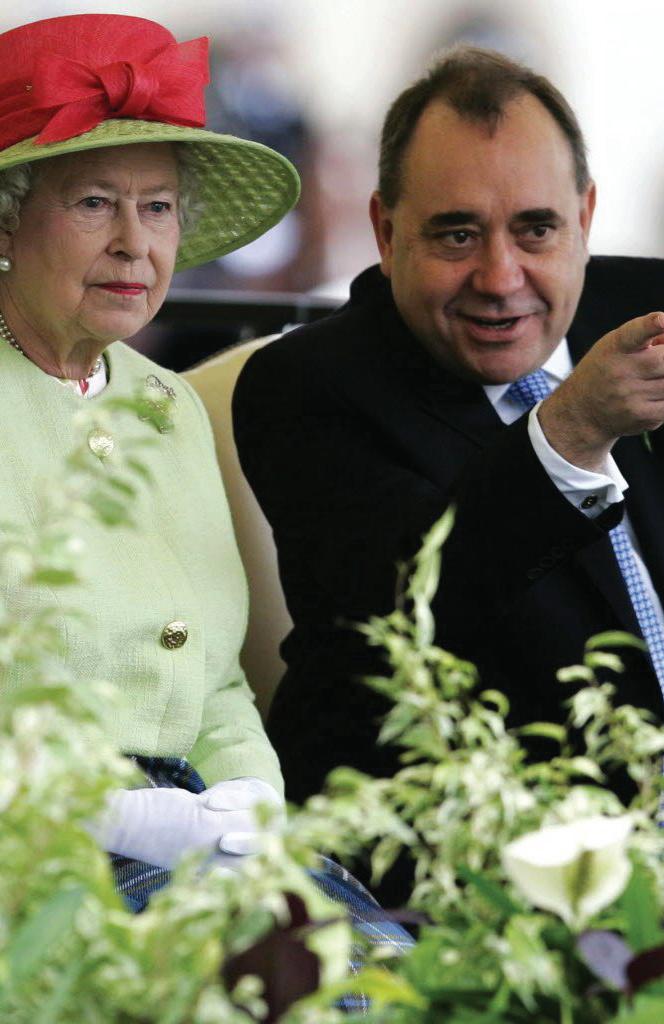
Welsh NHS set for Assembly election battle
ecent figures showed that 52.9 per cent of emergency responses to urgent 999 calls arrived within the goal of 8 minutes in Wales in March. Tis has been the best since December when only 42.4% of ambulances arrived within eight minutes. In December it was revealed that one in nine calls for emergency services took over 20 minutes to arrive, which could be life threatening for an emergency patient. After the revelations the Welsh Conservatives criticised the way that Labour were handling the Welsh NHS, and this became a recurring theme for the months to follow.
Te Conservative Welsh Shadow Minister for Health, Darren Millar stated, “Long delays for urgent assistance could potentially mean the difference between life and death. Despite assurances of improvement, response times simply aren’t getting significantly better.
Labour’s Welsh Health Minister should make an urgent statement and explain his government’s failure to communities across Wales.”
Last October, there were many other claims that the NHS in Wales was under-performing, and that it fell behind its England counterpart.
As a result weeks before the election the Conservative party made claims about the way that Labour party dealt with health budgets in Wales.
Te Conservatives claimed Wales was the only part of the country to have its health budget cut since 2010. Since then the Welsh NHS has seen long waiting times with some referrals taking over nine months, as well as ambulances under-performing when it came to response times.
A Daily Mail investigation revealed ‘patients dying while on waiting lists or being forced to move to England for life saving treatment’. However in response the BBC revealed that the accusations weren’t as straightforward as the Daily Mail had made them seem. During the General Election the investigation and accusations opened the door for Cameron to criticise the way that Labour led the Welsh NHS.
Alun Davies, the Blaenau Gwent
Assembly Member claimed that these criticisms were a large part of why Labour lost the trust of the public in the General Election. He stated, “In Wales we also have comprehensively lost the argument on the National Health Service. Whatever we may think of the Tory attacks, it is entirely reasonable for a Conservative party to attack the record of Labour in Government and Labour must respond with a calm explanation of what we’re doing and what we wish to do.”
Hopefully, successes such as better response time will recover more
trust in the NHS. However, we must see quick results if the Welsh Labour Party is able to gain more confidence for the National Assembly for Wales election next May. Despite the ambulance responce times improving, and A+E wait times improving in the last month, there are still problems in the Welsh NHS as is shown by the slipping cancer treatment waiting times. Non-urgent cancer treatment waiting is at its worst level for eight years, a target the Labour Welsh Government cannot ignore with an election in less than 12 months.

20
POLITICS
“
James Alston
” “
”
Sarah Hazelwood
Pictured: Ambulance and A+E units under pressure throughout Wales
(Credit: Emily HoulstonJones)
Pictured: Alex Salmond with Queen Elizabeth II
Daniel Heard
“IThe British Council has set up an advisory group consisting of various organisations which are planning a series of activities to mark the milestone
Does the Welsh language hold the key to political reconciliation?
n 1865, a group of around 153 people from across Wales set off from Liverpool on board the tea clipper Mimosa to start a new life in Patagonia. Tis week, the Welsh community in Argentina and in Wales will celebrate 150 years since their ancestors arrived to seek a new life.
However, what should be an occasion marked with celebration has instead ignited old debates regarding Anglo-Argentine relations. So how do you resolve the arguments between the UK and Argentina over the elephant in the room: Te Falklands? Te islands have been invaded and fought over, leading to hundreds of deaths. Tis is where Wales (seemingly) appears to be a viable answer. Yet things couldn’t have gotten off to a worse start...
Argentine ambassador Alicia Castro and Chubut Governor Martin Buzzi were part of a delegation from the province in Argentina that visited Wales earlier this year as part of the celebrations. Welsh First Minister Carwyn Jones was advised to distance himself from ‘distasteful’ comments over the Falkland Islands’ sovereignty during their visit.
Ms Castro claimed the Welsh settlers’ integration refuted ‘propaganda’ of Argentina’s hostility towards British descendants “as claimed by a sector of Malvinas Islands inhabitants”.
Despite this, both parties have promised to work together to organize the 2015 celebrations, with Ambassador Castro praising the integration of the Welsh community in Argentina as an example of the hospitality that Argentina extends to the
British.
However Andrew RT Davies, leader of the Welsh Conservatives, called on the First Minister to make his position over the Falkland Islands clear. “I would expect the Welsh government to have seen this statement prior to its release. If so, it is extremely naïve for the First Minister to allow himself to be used as a pawn in this dispute and an explanation is swiftly required.”
With support from the Welsh Government, the British Council has set up an advisory group consisting of various organisations which are planning a series of activities to mark the milestone.
Te collaboration includes the development of the British Council Wales Patagonia 150 website, a social
media campaign and the launch of the Welsh Government funded online package of curriculum material.
In March 2014, as nine members of Parliament’s Welsh Aff airs Committee flew to Buenos Aires for a sixday visit. Teir ultimate destination was, of course, Patagonia, with Committee chair David Davies explaining “We were invited by the Argentine government to come and visit. Te Foreign Office were keen for us to go and visit because of, frankly, a lack of very friendly communication between the two countries for a number of years now.”
“ Te visit will lead, hopefully, to a slight thaw perhaps in the relationship between the UK and Argentina.
“ Tey are potentially a huge trading partner for us and I hope we
learn something about how Wales is marketed because I don’t feel that’s been done as well as Scotland or even some regions of England and if we can do anything that improves the way that Wales is marketed then that could be very good for our tourism industry.”
Despite this somewhat rocky patch in the relationship, nothing can deny the bond of history between Wales and Argentina. However, the rest of the United Kingdom also has something of a history with the South Americans. Yet because of our creation of a Welsh community that continues even today, this opportunity for parity cannot be wasted because of these disagreements, as a strong relationship will benefit each party.
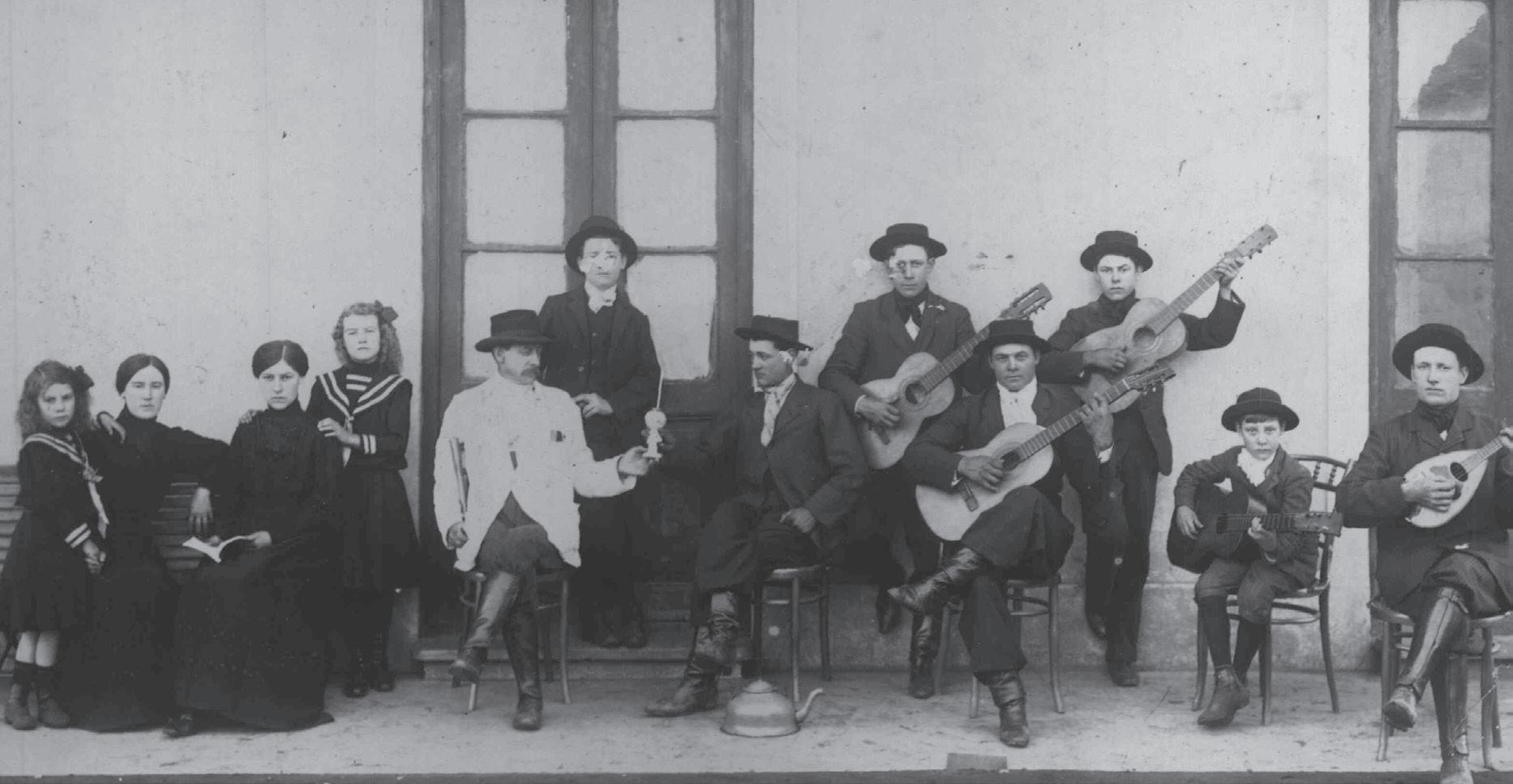
A week in the Senedd with Carwyn Williams
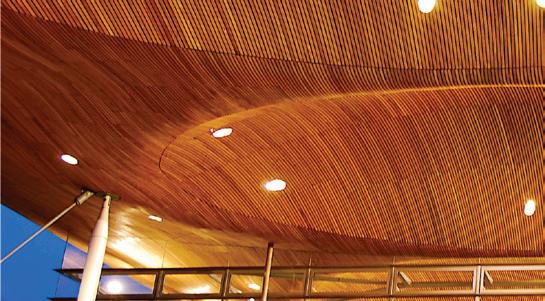

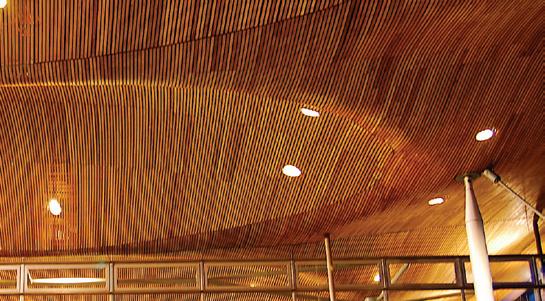
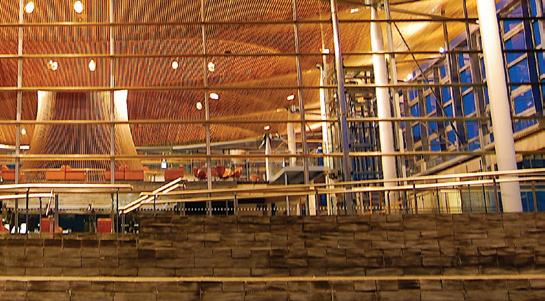
First Minister’s Questions With talk that the Prime Minster will outline his EU referendum bill this week, the First Minister said that leaving the EU would have a substantially detrimental effect on the Welsh economy. Simon Tomas suggested the minister set up a cross-party campaign against leaving the EU, Carwyn Jones agreed, adding that it was of vital importance to emphasise the benefits of the EU to Wales. However, it was also noted that it is

vitally important that the referendum not clash with the National Assembly for Wales election next year, as the Welsh people deserve a clean election, suggesting the EU referendum would dominate media coverage. Responding to claims the UK would distribute money like the EU has done if we left, Jones stated that Welsh farmers get in excess of £200 million from the EU in subsidies, and there is no doubt in his mind that there is no way that money will be
made available by the UK government in the same way.
TTIP was also briefly touched upon in the chamber, with members discussing the importance of removing trade barriers to grow the Welsh economy. Jones however emphasised that he would not support any agreement that would force the government to privatise businesses or restrict the government’s right to re-nationalise services from private hands. Despite this, he added he had received assurances about this.
Te Liberal Democrat leader Kirsty Williams, who last week backed Tim Farron for the party’s leadership, mentioned that lowering the drink drive limit in Wales could save lives on our roads. Te First Minister agreed that the current limit is too high, calling for this to be devolved so the assembly could introduce legislation. Te minister also added the importance of educating people on the dangers of driving the morning after, as people are unaware that they may still be over the drink drive limit
the day after drinking.
Leanne Wood quoted the First Minister from the election campaign, querying whether it will still be possible to fund 1,000 extra staff members for the Welsh NHS. Jones responded that the mansion tax was a secure form of funding that is now not going to happen, but it is said £8 billion will be spent in the English health service and we expect a consequential from that which would help if it is not put off by a big cut to the block grant Wales receives. It was also stated that the nature of the health service is changing, especially in GP practices where we are changing to a salaried GP service rather than a contracted one which should help solve the rural recruitment crisis.
Altaf Hussain joins Assembly A new Conservative member joined the chamber last week to replace Byron Davies MP. Dr Altaf Hussain is an orthopaedic surgeon, and emphasised the priority of the NHS in his welcoming speech.

Learn more about the anniversary at www. patagonia 150.org
21 POLITICS
Pictured: Some of the first settlers in the Chubut valley, Argentina.
”
tweet us @gairrhyddsci
email us science@gairrhydd.com or visit us online at gairrhydd.com/science
Gair Rhydd Science Special: Health
The way we treat our bodies as we revise often seems like a necessity. Tere’s no way you can possibly ace that exam without that third tub of ice cream of the week. However, as Cardiff University starts winding down towards the end of the year, many students will start to wonder how to go about shaking off that month of revision snacking whether
 Shanna Hamilton
Shanna Hamilton
Fit be to impress people on the beach or just improve your chances of living past the age of 25.
Tere are so many fad diet and excercise regimes going around that it can sometimes be impossible to decide how best to go about getting healthier with different health gurus telling you completely different things. Even many expert dieti-
tions are at odds over what the ideal lifestyle is to keep your body fit and healthy.
Tis problem is further compounded by the fact that many health regimes that become fashionable for a while simply don’t work. Tese are usually just based on flawed science but sometimes they’re actively fraudulent and exist just to scam as many
consumers as possible.
As ever, gair rhydd science is on hand to examine some of the biggest health issues of the moment so you can decide whether its worth getting involved or not. We’ve even put a few of our own recomendations at the bottom based on what the scientific community currently believes to be a healthy lifestyle.
Mono-meals and extreme veganism: is the “Raw ‘Til Four diet” healthy?
reelee the Banana Girl, a selfprofessed vegan “diet guru” who preaches on the benefits of a “raw until four” extreme vegan diet, and regularly consumes up to 51 bananas in one day, argues “the fruit and veg eater will always be slimmer and of course healthier”. But is her approach safe?
Currently in society we are forcefed new diet plans, low-calorie foods and images of what healthy looks like. Many flock to try the latest fad, whether it be Weight Watchers, meal replacement shakes, or unproven “weight-loss boosters” such as raspberry ketones. It is therefore no surprise that when presented with a picture of Leanne Ratcliffe, or “Freelee’s” ab-ripped stomach, many fall for the mantra in following an extreme vegan diet.
Te Australian YouTube sensation blogs frequently about her diet that contains up to 91 per cent fruit, no animal products, no cooked food until after 4pm, and “mono” meals

If you’ve read the Gair Rhydd Science section at all this year, it would not be hard not to notice our distaste for poor health journalism. When the claim that strenuous jogging is “as bad as doing no exercise” splashed across the headlines earlier this year, our story senses began tingling. How can this possibly be true, when it flies in the face of traditional exercise advice?
Te UK physical activity recommendations for adults stands at 150 minutes of moderate-intensity activity per week, plus muscle-strengthening activities at least twice in seven days. However, researchers who authored paper “Dose of Jogging and Long-Term Mortality”, claim this
consisting of only one type of food. In one video diary, she ate an unimaginable 51 bananas in one day – 20 in a smoothie for breakfast, ten for lunch and 20 for dinner. Tis totalled a whopping 5000 calories, more than double the recommended amount for the average woman. “ Tere are so many people out there saying restrict your calories to lose weight, but it’s not true”, Freelee argues. According to the US Department of Agriculture, an average banana contains 422mg of potassium, 12 per cent of the recommended daily allowance. Consuming 51 of these would mean Freelee blows the allowance by a staggering 500%, consuming five times more than deemed safe. Excessive levels of potassium can play havoc with the kidneys, and can even disrupt your heartbeat. Tis is without mentioning the huge sugar content of the sweet fruit – a massive 14g. Tis in combination with a highcarbohydrate “mono” diet could lead to issues with blood sugar control
and poor dental health.
Freelee also advocates meals consisting of a huge quantity of just one ingredient, known as “mono” meals, suggesting these are the key factor in obtaining her lean physique. “When you eat simply…vitamin and mineral absorption is maximised therefore more nutrition becomes available to the brain which in turn satisfies the body’s nutritional requirements and stops cravings for junk foods.”
Tere is no scientific evidence to support her claims and the British Dietetic Association (BDA) does not endorse her diet. Spokesperson Chris Chasin said, “It is an unusual concept just eating one food at a meal. It is likely that it would result in meals being based around one nutrient. It would also mean that there would not be a broad spread of micronutrients. It would not make eating a pleasurable experience.”
Some go further with their criticisms. Sandra Bachiyr has started a change.org petition to have Freelee
and her partner’s YouTube accounts removed after their “unlimited calorie, low-fat/high-carbohydrate vegan diet nearly killed” her. She recalls trying the 30 bananas a day diet for several weeks before she was “rushed to hospital” and “nearly died from a pulmonary embolism caused by weight gain from their high-sugar diet”.
While there are many benefits in following a healthy vegan diet, ditching the high-fat, high-processed Western food diet that many of us succumb to, vegans should pay attention to iron and calcium intake as well as Vitamin B12, as these are often found in animal products. Ainsley Pigott, also of the BDA, said, “A wellbalanced vegan diet can be extremely healthy if managed correctly.” However, he added, Freelee’s diet “conflicts with traditional healthy eating advice which recommends variety, portion control and moderation.” So readers beware of consuming too many bananas, and diet sensibly.
“
It is an unusual concept just eating one food at a meal... It would not make eating a pleasurable experience
”
may not be necessary. “You don’t actually have to do that much to have a good impact on your health, and perhaps you shouldn’t actually do too much,” says Jacob Louis Marott of the Frederiksberg Hospital in Copenhagen. “No exercise recommendations across the globe mention an upper limit for safe exercise, but perhaps there is one.”
Te Dutch study was published in Te Journal of Te American College of Cardiology In February of this year, and it didn’t take long for media outlets to hype up the findings. Te Daily Telegraph ran with the sensationalist headline, “Fast running is as deadly as sitting on couch”, while the normally timid and more trust-
worthy BBC ran with “Training very hard ‘as bad as no exercise at all’”. Te study in question involved 1,500 participants in Denmark, and results seemed to indicate that moderate jogging was associated with a longer lifespan compared to a sedentary lifestyle, but strenuous jogging did not confer the same advantage. According to the NHS choices website, “a major limitation to this study was that once the joggers were split into groups… some individual groups – particularly the most active groups – were much smaller. Tese small numbers mean the analyses are less able to detect differences between these small groups and the sedentary group, even if they do exist”.
A misunderstanding of the paper and the use of statistics yet again leads to misleading journalism that can confuse an already confused public who are bombarded with conflicting health messages. Te NHS choices website categorically states, “Overall, the study does not contradict the current physical activity recommendations and the issue of people not doing enough exercise is more likely to be a concern than people over-exercising.”
While there may be an optimal amount of exercise for your health, this remains unknown – so get out and run around to your heart’s content, it won’t be bad for you.
Keep on running, because there really isn’t an upper limit on exercise “ ”
The issue of people not doing enough exercise is more likely to be a concern than people overexercising
SCIENCE
Shanna Hamilton

Meryon
Roderick
TTe questionable benefits of whey, creatine, glutamine and other sport supplements
he protein shake has become a common sight on many university campuses. Many people use whey protein, creatine and other sport supplements to aid muscle growth and recovery after workouts, but with the large quantities that some people consume, many worry about the potential negative health effects.
Whey protein is probably the most commonly used sport and bodybuilding supplement because it is relatively cheap and aids body building in numerous ways
Primarily, taking whey protein as a supplement speeds up protein synthesis in the body, which improves muscle growth and workout recovery. It also speeds up the rate at which the body burns fat, allowing someone who takes it to develop muscle tone

Though it has existed since the 1970s, the Paleo diet has recently exploded in popularity, with adherents as varied as Miley Cyrus and Kobe Bryant. Te idea behind the diet is simple: eat the way our hunter gatherer ancestors did. Proponents of the Paleo diet suggest that we evolved over millions of years to eat the foods that our species did before we developed agriculture roughly 12,000 years ago and that since then we haven’t had time to adapt to our new, carbohydrate rich diet.
more easily. Te good news for regular users of whey protein is that the negative effects are minimal. Very high doses can result in increased bowel movements, nausea, fatigue and headaches but this can all be reversed simply by laying off the whey protein for a few days.
Creatine is another commonly used supplement but rather than being a protein, creatine is a nitrogenous acid which mediates energy transfer in muscle cells. Taking creatine as a supplement helps to increase muscle mass by aiding energy production in the muscle tissue. Unfortunately, the health effects of creatine are more complex than whey protein with potential links to asthmatic symptoms in people who are allergic to it. Tere are also concerns regarding the effect of creatine on kidney and liver
function but studies have found that long-term daily consumption of up to 3g of creatine is safe so it appears that moderation is key.
Glutamine can be taken to improve athletic performance and recovery time. Tough the ability of glutamine to diminish swelling and joint pain is well documented, it is debatable whether it has any effect on athletic performance at all. Glutamine can however cause a wide range of side effects including vomiting, joint swelling and skin rash so it should be used with caution.
A more controversial supplement that is increasing in prevalence in the UK is human growth hormone (HGH), which is naturally produced by the pituitary gland but can be injected intravenously to increase muscle growth and bone density. Whilst
at moderate doses there appear to be few negative side effects, huge complications can arise from selfinjecting. Poor technique can result in severed veins or life threatening infection so its important to weigh up the benefits with the quite serious risks if you’re thinking of using HGH. Overall, a normal user is unlikely to suffer any negative side effects from the use of sport and bodybuilding supplements and all are far preferable to the use of anabolic steroids, which can cause impotence, breast growth in men, mental health problems and violent mood swings. Tese substances should be used with moderation and most importantly, if any negative side effects begin to materialise it is important you stop taking the supplement and ask a medical professional for advice.
“
” It is debatable whether glutamine even has any effect on athletic performance
Te problem with the Paleo diet: it’s just not that healthy “
A lot of the aspects of the paleo diet do make sense. It advocates avoiding eating processed foods of any kind and eating a lot of fresh vegetables which are both widely agreed to be components of a healthy diet. However, the problem is that the good points of the diet largely fall

under common sense and the other aspects don’t stand up well to scrutiny. Indeed, US News magazine asked a panel of experts to rank over 30 diet regimes in terms of health benefits and Paleo came at the very bottom. Te magazine noted that “experts took issue with the diet on every measure”.
Te major health problems arising from the paleo diet are from the complete avoidance of dairy products and cereals that it advocates.
Despite being a relatively new addition to our diet, when eaten in moderation dairy products are an important source of protein and the major source of dietary calcium for most people. Boycotting such an important food type can increase the risk of developing health problems such as osteoporosis. Te avoidance of cereals means that strict followers of
the paleo diet derive a large amount of the energy their body uses from the protein in meat. Relying so heavily on meat as an energy source also has health ramifications because over consumption of red meat in particular has been implicated as a cause of bowl cancer.
Te other problem with the paleo diet is the costs involved. A survey carried out on followers of the paleo diet found that they are typically American, between the ages of 2140, college-educated, and married without children. Tis implies a high income which is necessary to afford the vast amounts of nuts and meat that are required to supplement the much more cost effective cereals and dairy that paleo prohibits.
Te basic thinking behind the paleo diet is built on fallacy. We are not genetically identical to our hunt-
Our suggestions:
Do muscle-strengthening activities twice a week, including yoga (yes. that counts), heavy gardening or lifting. Just remember that the arm action in raising a pint to your mouth doesn’t count

Complete 150 minutes of moderate-intensity aerobic activity per week - this means cycling, or walking fast (like when you’re late for that exam)


Eat just a small amount of food that contains high fat and sugar content
Sweep the shelves of Lidl and try to eat plenty of fresh fruits and vegetables. You’ll consume less calories than when eating processed foods, as well as giving yourself a lower risk for heart disease and strokes. Eat a fruit salad instead of pizza on that hangover!

Make starchy foods a third of your diet. Tis doesn’t mean crisps and chips, this means wholegrain and wholemeal varieties such as brown rice, pasta and bread. Tese have more fibre, vitamins and minerals than their white counterparts. Tey are also often more filling

Try to be active daily, as much as you’d like to sloth on a heavy hangover
er-gatherer ancestors or even many other modern people when it comes to our dietary requirements. A prime example of this is that whilst only five per cent of adults in northern Europe are lactose intolerant, 90 per cent of Asian adults are. Even if we were, the diet of our ancestors was borne out of necessity rather than it being ideal. It’s a lot harder to optimise your diet when you have to hunt and kill your food as opposed to just buying it at the supermarket. Furthermore, almost every species of plants and animals that our prehistoric ancestors would have used for food is drastically changed so it’s impossible to closely replicate what our forebears ate, even if we wanted to. Why after millennia of scientific progress are we basing our impression of health on our evolutionary past?
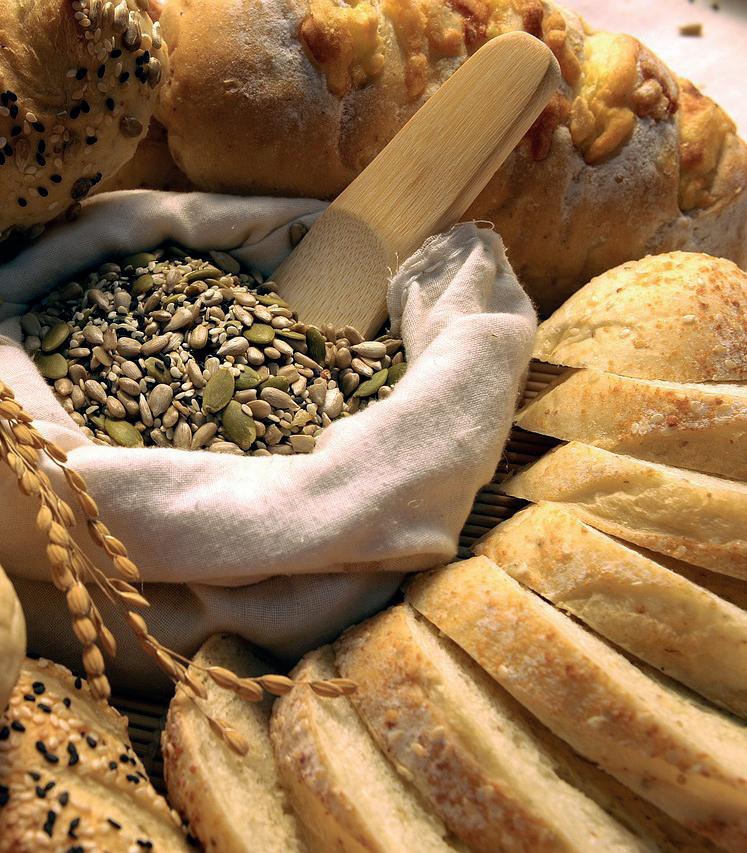
” Experts took issue with the diet on every measure
23 SCIENCE
Meryon Roderick
Pictured: A selection of brown breads and grains




May
Legend –
Bob Marley Tribute
24/05/15, £13 ADV
June
Young Guns
04/06/15, £12.50 ADV
July
Karyn White
11/07/15, £20 ADV
September
Mark Lanegan Band
04/09/15, £17.50 ADV
October
Peace
03/10/15, £15 ADV
The Staves
03/11/15, £16 ADV
Everything Everything
07/11/15, £17.50 ADV
November
Slaves
15/11/15, £13.50 ADV
Happy Mondays
29/11/15, £28.50 ADV


February
Fun Lovin' Criminals 18/02/16, £23.50 ADV
@CARDIFFUNION CARDIFFBOXOFFICE CARDIFFBOXOFFICE.COM | All tickets subject to booking fee
“
Shanna Hamilton
Investigators from around the world are trying to crack the nut of cancer. The Cubans are thinking in ways that are novel and clever
Cuban lung cancer vaccine gets US approval
Tawing relations allow Cimavax research to get started in the US
Thanks to the lingering effects of the decades-old trade embargo with the US, Cuba have had sole use of a promising lung cancer vaccine that has been in the pipeline for over 25 years. As relations between the island nation and superpower begin to thaw, the Obama administration may have secured the start of clinical trials to begin in the US.
“The chance to evaluate a vaccine like this is a very exciting prospect,” says Candace Johnson, CEO of Roswell Park Cancer Institute, New York, which will host the trials. After a visit to Cuba’s Center for Molecular Immunology, New York Governor Andrew Cuomo helped finalise the agreement to develop the Cimavax vaccine stateside.
According to Cancer Research UK, Cimavax is a treatment that has been developed for non-small cell lung cancer. It targets a growth factor that when over-produced causes cells to divide uncontrollably, leading to the rapid spread of cancer across the body. The vaccine is freely available to Cubans, and while trials have been on a very small scale, the evidence is convincing – it can help patients live four to six months
longer than those who don’t take the medication. It also improved people’s quality of life, reducing coughing and breathlessness that can become unbearable as the disease takes hold.
While this certainly will not cure the disease it will help to extend precious lives, and reportedly one injection costs only 1 US dollar. Side effects also appear mild, with the most common including chills, fever and nausea, all regular symptoms of cancer patients regardless.
Cuba seems an unlikely source for a cutting edge immunological cancer drug, but Johnson attributes this to being more resourceful. “ Tey’ve had to do more with less,” Johnson said, “so they’ve had to be even more innovative with how they approach things. For over 40 years, they have had a preeminent immunology community.” Biologist Tomas Rothstein of the Feinstein Institute for Medical Research also added, “Investigators from around the world are trying to crack the nut of cancer. Te Cubans are thinking in ways that are novel and clever.”
Although available in Cuba, it will be a long road to becoming available in the US or the UK. Although Phase

III clinical trials are taking place in Cuba, the vaccine must be rigorously tested for its safety and effectiveness, which is likely to take years. Since the agreement with the US was finalised, trials are expected to begin in late 2015 or early 2016.
Johnson is keen to see how the scope of the vaccine can be extended, and would like to investigate whether
(Source:
Meryon
Roderick
The fibroin protein is made up of crystalline solid regions floating in an elastic amorphous matrix; this structure is what gives the material its extraordinary strength...
cancer can be prevented from occurring in the first place. “And let’s just say that works and we prevent recurrence and we show an efficiency in that setting. We could move back even further, and perhaps this vaccine may have value in treating heavy smokers or people with already chronic lung diseases that are at high risk for lung cancer.”
Spider silk holds the key to new knee injury treatment
As the populations of developed countries become older and more obese, knee injury is quickly becoming a prevalent medical problem. Over 70,000 knee replacement surgeries are performed in the UK each year and this number is expected to rise in the future posing significant costs to the NHS. However, an Oxford based biotechnology firm may have discovered the key to preventing progressive knee injury and it all comes down to spiders.
Orthox was founded in 2008 to capitalise on the potential for regenerative medicine found in spider silk by labs at Oxford University. Teir newest product, FibroFix, aims at tackling the rising incidence of knee injury in a completely novel way. FibroFix is designed to replace damaged cartilage in injured knees, before they can deteriorate to the point they need to be replace. It is made up of fibroin which is the main component of the silk produced by silk worms and spiders. Silkworms are capable of producing huge amounts of silk which Orthox buy at £15 per kg but the way in which silkworms produce their silk makes it far inferior to that of a spider.
Orthox therefore re-spin the silk under the same conditions that spiders use to produce it, making it
much stronger. In spider silk the fibroin protein is made up of crystalline solid regions floating in an elastic amorphous matrix; this structure is what gives the material its extraordinary strength, 25 times that of high tensile steel.
Tis silk is then used to produce a curved, rubber like material that forms disc shaped pads made up of 15% fibroin and 85% water filled pockets. Tis creates a spongy texture whilst retaining the exceptional strength of spider silk, effectively mimicking the cartilage that it is designed to replace. Tese pads can then be inserted between the bones of a knee joint using keyhole surgery preventing any further damage to an injured knee.
Nick Skaer of Orthox says that the main application of this new technology would be in people in their 20s who have sustained sporting or other injuries to prevent them deteriorating throughout their lives. “What we are trying to do is first and foremost prevent knee joints from deteriorating by repairing the cartilage in the first place but once they have deteriorated, giving the patient a strategy which is not an all-or-nothing, onetime shot which you can only have at the latter end of your life.”
FibroFix is currently undergoing
clinical testing but if it is successfully introduced to the market the Skaer believes it will also be able to be applied to many other parts of the body: “If it works in the knee, then the technology does not need to change


to address problems in the hip, the shoulder, the ankle. Tere are lots of other articulating joints that we could go into and we just have to change the shape of the implants and the surgical technique to implant them.”
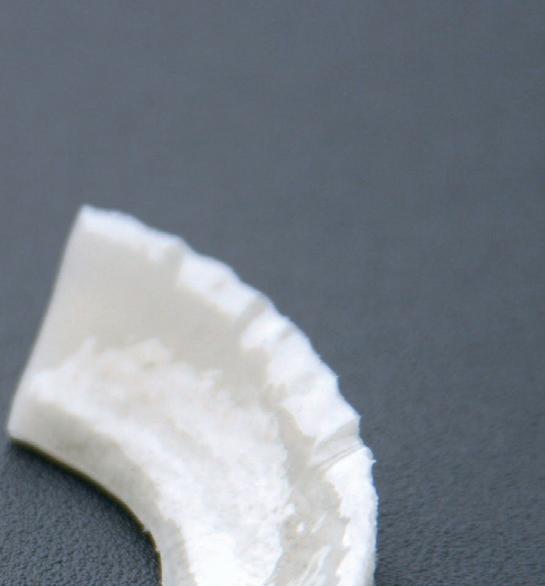
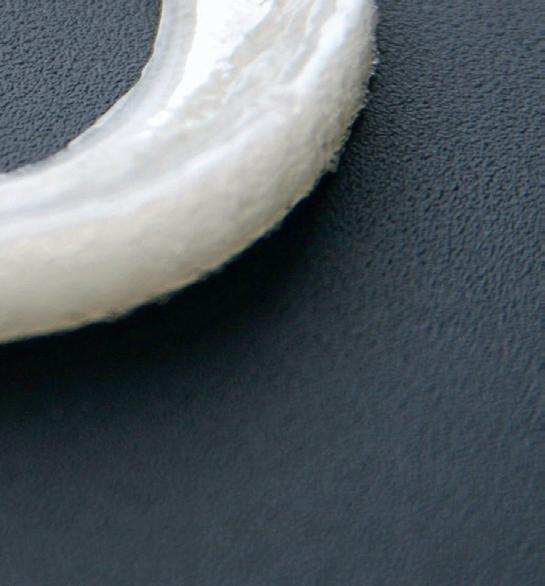
25 SCIENCE
Pictured: A FibroFix pad designed to replace the meniscal cartilage of the knee.
(Credit: Orthox ltd, www.orthox. co.uk)
”
“
Pictured: A cancerous lung cell
Wellcome images, Flickr)
”
“Roberts is moving to a team that can compete near the highest level, although they’ve struggled in recent years
”Roberts’ Harlequins move fuels regional rugby row
Harlequins have confirmed that the Wales and British & Irish Lions centre Jamie Roberts will join the club after the Rugby World Cup, as the 2012 Premiership champions continue their recruitment drive.
His arrival at Te Stoop comes after two seasons in the Top 14 with Racing Métro, joining after having secured early release from the Parisian side. He joins his compatriot Adam Jones, the Scotland wing Tim Visser, the Australian second-row James Horwill and the Samoan centre Winston Stanley for next season as Conor O’Shea looks to revitalise a side who endured a difficult season, finishing eighth, their lowest league position since 2010.
Roberts had long been linked with a return to Wales, and it was thought that he would elect to rejoin the Blues, his former team, or the Ospreys, at the end of the season, but Roberts has decided to join an ambitious, albeit confidence-low Quins side, in an attempt to add the Aviva Premiership to his already impressive list of winner’s medals.
Boss O’Shea has tipped the former Blues star to become a great contributor for the club. Roberts will link up with his new teammates after Wales’ World Cup exploits in the autumn, and is likely to be available for selection from December.
Roberts, who qualified as doctor
in 2013, shortly before the Lions’ successful tour of Australia and his subsequent move to Racing, will also continue his studies at Cambridge University.
Personally, I think it was the right move for Roberts. He’s played in Cardiff and in Paris so, logistically, London is the next step. Also, he’s moving to a team that can compete near the highest level, although they’ve struggled in recent years, as the season just gone has made clear. Compare this to the other team he could have joined, the Blues, and it’s a bold choice, though perhaps one of head ruling over heart.
He’s also going for academic reasons, as it is one of his ambitions to play in the Varsity match at Twickenham at some point.
Earlier this month, Wales head coach Warren Gatland confirmed that, while he would prefer his players to be based with one of the four Welsh regions, Roberts, who has 72 international caps, would still be available for selection, even after agreeing to sign for the Quins.
During his time with the Blues, the powerful centre won the Anglo-Welsh and European Challenge Cups in 2009 and 2010 respectively. Since then, Roberts won two Grand Slams in 2008 and 2012, and another Six Nations title in 2013. In 2011, he helped Wales to a fourth place finish at the World Cup in New Zealand, and was also

part of the Lions series-winning side in Australia in 2013 after being named man of the series in South Africa four years previously. His record as both a club and international player speaks for itself.
Regarding the selection policy, quite simply Wales don’t have the strength in depth to not pick foreignbased players. If you are established in Gatland’s thoughts, then moving to France or England will probably not change that. Obviously, player release concerns in England can affect your chances of selection, but, James Hook
aside, we have yet to see a high-profile player really fall victim to ‘Gatland’s Law’.
I don’t see any reason why players should be expected to stay with the regions when they could earn and win so much more abroad, as perhaps is most evident with Roberts’ fellow Welshman and newlycrowned European Champion, Leigh Halfpenny, at Toulon.
Ultimately it’s a short career, especially so in rugby, and they need to look after themselves and their families first.
Exodus from Cardiff as Blues look to rebuild
Former Wales captain Matthew Rees is one of seven players who will leave Cardiff Blues at the end of the season. Te hooker joined from Scarlets in 2013, but was diagnosed with testicular cancer that October. Rees underwent treatment and returned to the Blues’ playing squad in June 2014.
Other big-name departures include Adam Jones, Filo Paulo, Simon Humberstone, Marc Breeze, Joaquin Tuculet and Lucas Amorosino. Jones, who will join Premiership side Harlequins in the summer, has ambitions to become a coach, but

wants to continue playing beyond next season. Fly-half Humberstone, 27, will join Doncaster Knights, having played in 14 games after making his debut against Worcester in 2013.
For the Blues, you feel, without a coach, it’s too early to tell if these departures will have any impact on the squad going forward. Given the disappointing season that has come and gone, you could argue it’s irrelevant whether it impacts their squad that much – as neither the morale nor the playing standards can get much lower. Tey can now be considered the ‘fourth’ region almost, given the Dragons resurgence, and you have to question if they can get back into the top tier of Europe and compete as they have done in recent years.
In all honesty, the players that have left come as no real surprise. Adam Jones had announced his move to Harlequins some time ago, while Matthew Rees is currently undergoing shoulder surgery, and is 34. With Kristian Dacey in the wings as capable replacement, it’s probably the right time to let him go. To come back and play after his cancer battle is an achievement in itself.
Joaquin Tuculet and Lucas Amorosino admittedly are blows for the Blues, as they were rare positives in this dreadful season, but the fact of
the matter is that if they want to play international rugby, they have to play for the new Argentinian Super Rugby Franchise to stand any chance of being selected.
Filo Paulo will be missed, as there isn’t really any obvious candidate to replace him. Chris Dicomidis has struggled to step up, after the Cypriot international came to the Arms’ Park from the Welsh Premiership with Pontypridd, while former All Black Jarrad Hoeata has been an undisciplined disappointment.
Tere are positives to take from these departures, however, as opportunities for the younger prospects will come.
Academy Player-of-the-Season Liam Belcher will certainly be one to watch next season.
Fellow youngster Garyn Smith, a centre, who was named the most promising player of the season just moments after scoring a last minute try against Zebre, will be another hoping to catch the eye, after progressing through the ranks at Pontypridd RFC.
If the Blues can get a good coach in place, someone like Bristol’s Danny Wilson, who completely transformed the Scarlets’ scrum in his time at Parc Y Scarlets, before pre-season, then they have enough quality players to at least surpass the Dragons again, if not challenge for Europe.
Below: Mat-
“
” Filo Paulo will be missed, as there isn’t really any obvious candidate to replace him
SPORT tweet us @gairrhyddsport email us sport@gairrhydd.com or visit us online at gairrhydd.com/sport
Dan Heard
Dan Heard
Pictured: Above: Jamie Roberts is heading to Harlequins (Photographer: Alan Cowhurst, Getty Images)
thew Rees looks set to leave the Blues
Blues released players
Matthew Rees
Adam Jones
Filo Paulo
Simon Humberstone
Marc Breeze
Joaquin Tuculet
Lucas Amorosino
Joe Collings-Wells
Cricket firsts dismiss seconds with ease
Last week, Cardiff University firsts took on their own second team in a BUCS fixture filled with rivalries. Both teams travelled together, with the firsts securing the home dressing room. Te firsts also won the toss and elected to field, in part due to a volatile forecast.
Te weather was wayward for the first few overs and so was Stefan Franklin, bowling loads of wides in his first two. Franklin justified another over as he cleaned up Dan Heath on his 12th ball of the second over.
Williams then wove some magic with some Dwayne Leverockstyle left arm spin and dismissed Baig
Tom Morgan then imposed himself on the firsts with some muscular shots down the ground, as well as some surprising agility between the wickets. Meanwhile, it was not Andy’s day up at the other end, as he was snaffled by first slip off James Aston.
Will Neale was into the attack and Morgan continued to punish full bowling, but was caught at point off a dodgy Neale full toss for 37. Castle and Akbar then rebuilt against Baig and Collings-Wells, with Castle pummelling the latter down the ground before Baig accounted for them both.
Tis brought the club chairman to the crease and he departed for 6

Continued from back page
The signs are pointing towards every chance of a very successful 2015 for Glamorgan
with some sharp glove work off Feroz. Social secretary Kit Williams them strolled to the crease; the second’s man with a plan. He deposited Baig down the ground for 4 with his first ball before pulverising Collings-Wells into the bowls pitch to raucous cheers.
Willliams’ swashbuckling innings did not last however, with James Aston gulping up a chance the next over. Collings-Wells’ woes continued, as he was hit for consecutive boundaries by social-member Elliot Skehel as the ever-athletic Chris Sapwell collapsed over a chance. He dismissed Skehel next ball before being clattered to the boundary by social secretaryin-waiting, Adam Baker. Benson then grabbed a simple slip catch off Collings-Wells to end the innings for 145.
Tea was fantastic as usual, with the second’s eating first (special mention must go to the brownies). Burland and Benson went out to open for the firsts and Burland started with a bang, getting out of first gear for the first time in his CUCC career with some lovely shots through the covers and midwicket.
Benson didn’t get going; managing to break his bat before hitting a

Baker full toss to cover. Tis brought Collings-Wells to the crease, with Burland hitting a more boundaries from the other end.
Te seconds needed a hero. Te chairman came steaming in downwind and nicked off Burland for 27: fantastic. Baig then played a frenetic innings, coming out in a cap and being mercilessly beamed by the second team’s pacemen. Disappointingly, he was put down by Heath after Skehel had set him up a treat. Te chairman then cleaned up Collings-Wells for 17
to the largest cheer of the day.
Jeremy Araujo strode to crease and batted with his trademark Caribbean flair, blasting fours all around the ground. Baig was busy counting balls, and the chase, although weather interrupted, was going well.
Williams then wove some magic with some Dwayne Leverock style left arm spin and dismissed Baig to a fantastic catch by the chairman. Captain Josh Allen and Araujo then saw the firsts home, Jeremy with 46*: well batted.
Cont’d: Glamorgan finally find winning form
plenty of life in it. Chris Cooke came out to bat with just five and a half overs remaining and he he made the most of every ball he faced. Four sixes and a four muscled him to an impressive 46 not out off just 19 balls. A valuable cameo from Ben Wright further inflated the final team total to 240-3.
Te Surrey batsmen’s valiant effort in response, which included a total of 26 boundaries, would have been enough to win on just about any other night. A powerful 58 off 32 from England international Steven Davies and an unbeaten 67 off 32 from Zafar Ansari were backed up by 37 off just 17 balls from the legendary Sanagkkara.
Unfortunately for Surrey, Glamorgan proved that their bowling was just as strong as their batting and they bowled the home side out for 215, with three balls to spare, to seal the victory.
Tree days later, Essex travelled to Cardiff and faced a side full of confidence after their impressive
performance that had taken them to the top of their group in the T20 Blast.
Te familiarly miserable earlyseason weather, combined with lacklustre performances, had already handed Glamorgan four successive draws in their opening Championship games. Tis left them among a cluster of sides on similar points in the Division
Two table, with perennial yo-yo county Lancashire the only ones to make a statement, taking three wins from their five games.
Batting first at the SWALEC Stadium, the home side made 314 all out to secure three bonus points.
Te scoring was dominated by two polar innings. A slow 82 by Rudolph gave the captain the top score, while Craig Meschede’s explosive 68 again suggested he should be moved up the order from his current position batting at number eight.
Meschede continued his contribution as the visitors took to the
crease, taking 3/73, after David Lloyd had already removed the openers. Mixing up their right-arm medium pace with Graham Wagg’s left-arm medium was a shrewd tactic, as Wagg proved to be the pick of the bowlers with his 11th five-wicket haul in First-class cricket. Aggressive bowling limited Essex to 221 runs and handed Glamorgan three bowling bonus points.
Sitting on a lead of 93, the Welsh county had every reason to be confident going into the second innings and added 270 runs to set the visitors a target of 364 with four sessions remaining. Te target was clearly too imposing for them as they appeared to be aiming to play out the draw and salvage any points they could.
Glamorgan picked off the wickets gradually, Meschede and Wagg again in the wickets along with Michael Hogan and Andrew Salter, and sealed the win before tea on the final day. Essex made 274, meaning the final margin

of victory was 89 runs. Te 16 victory points and six bonus points they took from this game took them all the way up to third in the Division Two table. With Lancashire pulling away at the top of the table, the second promotion spot is very hotly contested.
Although England’s first Test against New Zealand signalled the official start of the summer for many people, around a third of games in the County Championship have already been completed, with Glamorgan now in a very strong position.
In limited-overs cricket, they have made a strong statement of intent heading forwards in the T20 Blast that will hopefully also help them when the Royal London One-Day Cup gets underway in July.
While they are many games to go before the season’s conclusion in September, the signs are pointing towards every chance of a very successful 2015 for Glamorgan.
Below left: Te SWALEC Stadium before a game (Photographer: Ihourahane, via Flickr)
Below right: Te County Championship Division Two table. Te top two teams earn promotion to the top flight
27 SPORT Pos. Team Played Points 1. Lancashire 5 87 2. Northamptonshire 5 63 3. Glamorgan 5 61 4. Gloucestershire 5 59 5. Surrey 4 58 6. Kent 5 49 7. Derbyshire 4 46 8. Essex 4 38 9. Leicestershire 5 38
“
”
“ ”
Pictured: Above: Te Cardiff Uni CCC derby (Photographer: Sunil Patel)
tweet us @gairrhyddsport
email us sport@gairrhydd.com or visit us online at gairrhydd.com/sport

Record-breaking win for Glamorgan
The county won their T20 opener and a week later won their first County Championship game of the season
Glamorgan CCC’s 2015 limitedovers season got off to a roaring start with a recordbreaking victory over Surrey in front of a crowd of 13,000 at Te Oval. Tree days later, the Welsh county backed this performance up by registering their first win of 2015 in the County Championship, beating Essex at home at the SWALEC Stadium.
Te total of 455 runs scored in the opening game of the NatWest T20 Blast on May 15th was the most ever scored in a Twenty20 match in England and the third most ever scored in the world. Glamorgan batted first and set a mammoth target of 241 for their hosts, which they did well to come so close to as they made 215 and lost by 25 runs.
Tings started off solidly for Glamorgan, but after wicketkeeperopener Mark Wallace was caught out for 10 in the third over, things really got going. Colin Ingram joined captain Jacques Rudolph at the crease and the two took apart Surrey’s bowlers.
Te South African pair scored 21 boundaries between them, with Ingram’s thrilling 91 off 47 balls the
top score, though Rudolph’s 62 off 39 would surely have been the highlight on any other day. Tings looked to be going downhill for Glamorgan when the two lost their wickets in quick succession, as Rudolph was caught by Kumar Sangakkara in the 15th over and Ingram bowled by Wahab Riaz in the 17th.
However, the innings still had

Continued on page 27

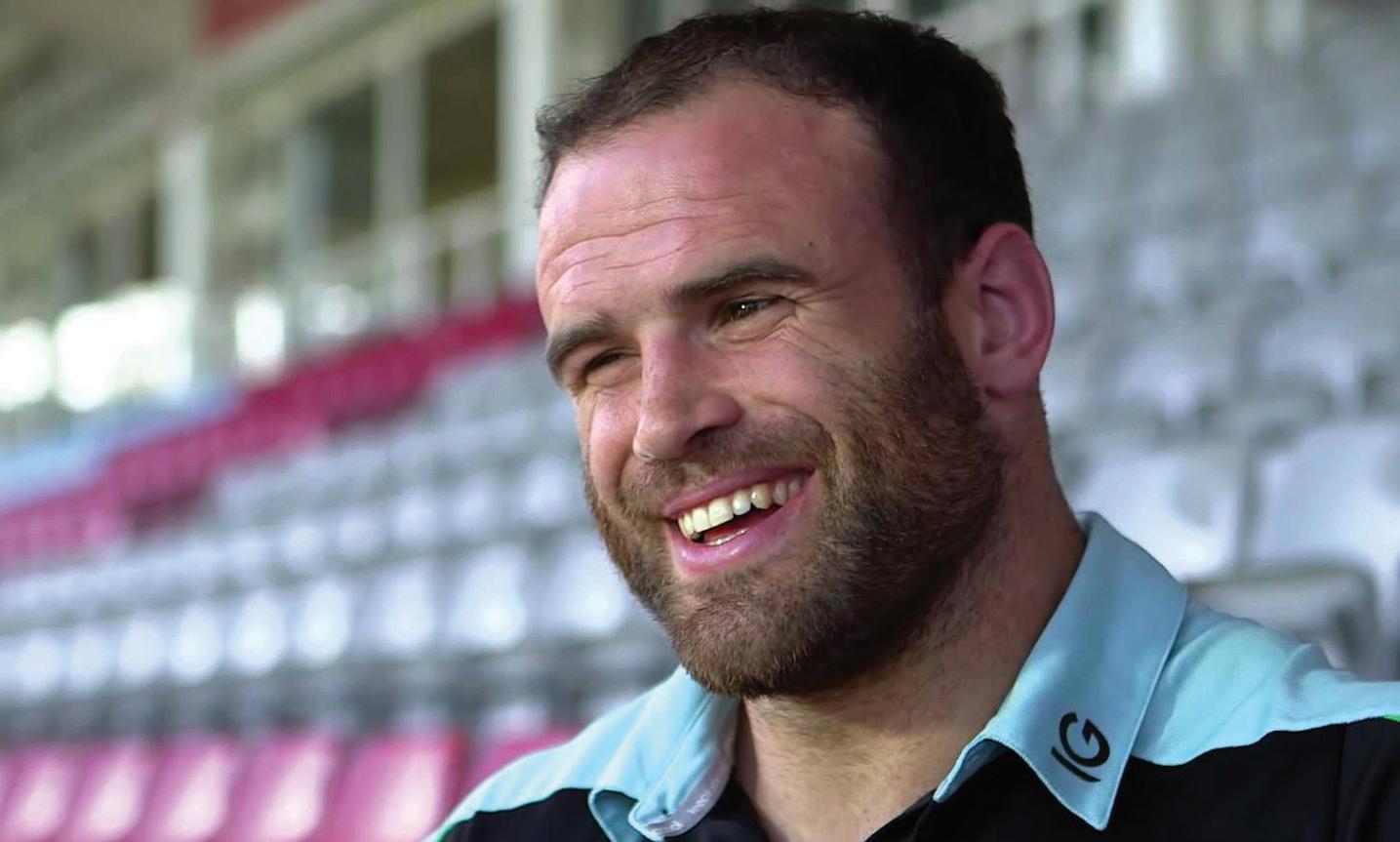



SPORT
Roberts seals Harlequins move P26>> CUCC firsts and seconds face off P27>> Jones among Blues departures P26>>
David Hooson























 Daniel Heard
Daniel Heard















































 Shanna Hamilton
Shanna Hamilton

























